Nathan’s Meeting Overview
BrynLee’s Space Communicator Speech on Space Suit
Greg’s News Update
Richard’s presentation on GPS
Nathan’s Meeting Overview
BrynLee’s Space Communicator Speech on Space Suit
Greg’s News Update
Richard’s presentation on GPS
Join us for our Monthly NSS North Houston Space Society (http://NorthHoustonSpace.org) meeting. Come join others who are excited about exploring the cosmos, learning how to use the resources of space to improve human life, and who want to go and spread humanity to the rest of the universe.
The meeting will be on Saturday, October 3, 2020 at 2PM (CDT) ONLINE Via ZOOM: https://us02web.zoom.us/j/85216600533
Tentative Agenda:
2:00 PM – Opening Remarks – Nathan Price
2:10 PM – Space Communicator Speech
2:20 PM – Recent Space News – Greg Stanley
2:45 PM – “GPS Declassified” – Richard D. Easton
3:30 PM – Q&A
3:45 PM -Share your personal space experiences since the last meeting. Rocket Launches, Other Meetings, Research, etc.
4:00 PM – End of Meeting
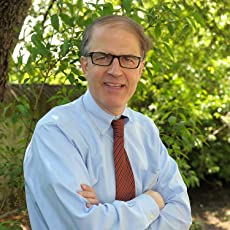
Richard Easton is a Fellow of the Casualty Actuarial Society and works for an insurance operation in Irving, Tx. He has degrees from Brown University and the University of Chicago.
He has written and spoken widely on the history of GPS. He is the co-author of GPS Declassified: From Smart Bombs to Smartphones. It was selected for the 2016 Professional Recommended Reading List by the National Security Space Institute and was used in 2019 as a textbook by the Air Power School.
He gave a plenary address in 2009 to the Guidance, Navigation and Control Conference of the AIAA. He spoke in 2012 to the British Interplanetary Society and the National Maritime Museum. He has also talked at the Explorers Club and Air Force Space Command where Gen John Hyten, then its commander and now Vice Chairman of the Joint Chiefs of Staff, introduced the talk. He has been on the John Batchelor Show and the Milt Rosenberg Show where he appeared with Paul Spudis.
Richard grew up with the space program. His father Roger Easton co-wrote the proposal for Project Vanguard and designed Vanguard 1 which is the oldest satellite still in orbit. He later played a major role in inventing GPS. In 2006, he received the National Medal of Technology from President Bush.
About GPS Declassified
GPS Declassified examines the development of GPS from its secret, Cold War military roots to its emergence as a worldwide consumer industry. Drawing on previously unexplored documents, the authors examine how military rivalries influenced the creation of GPS and shaped public perceptions about its origin. Since the United States’ first program to launch a satellite in the late 1950s, the nation has pursued dual paths into space—one military and secret, the other scientific and public. Among the many commercial spinoffs this approach has produced, GPS arguably boasts the greatest impact on our daily lives.
Told by the son of a navy insider—whose work helped lay the foundations for the system—and a science and technology journalist, the story chronicles the research and technological advances required for the development of GPS. The authors peek behind the scenes at pivotal events in GPS history. They note how the technology moved from the laboratory to the battlefield to the dashboard and the smartphone, and they raise the specter of how this technology and its surrounding industry affect public policy. Insights into how the system works and how it fits into a long history of advances in navigation tie into discussions of the myriad applications for GPS.
About the Meeting
Meetings are open to all age groups and interest levels. Come explore with us the potential that developing and exploring space has to better life here on earth and to open up new frontiers creating new perspectives that can help enrich the human experience.
The Vision of NSS is people living and working in thriving communities beyond the Earth, and the use of the vast resources of space for the dramatic betterment of humanity.
The Mission of NSS is to promote social, economic, technological, and political change in order to expand civilization beyond Earth, to settle space and to use the resulting resources to build a hopeful and prosperous future for humanity. Accordingly, we support steps toward this goal, including human spaceflight, commercial space development, space exploration, space applications, space resource utilization, robotic precursors, defense against asteroids, relevant science, and space settlement oriented education.
Website: http://NorthHoustonSpace.org
MeetUp: https://www.meetup.com/Future-North-Houston-National-Space-Society-Chapter/
FaceBook: https://www.facebook.com/NssNorthHoustonSpaceSociety/Posted on
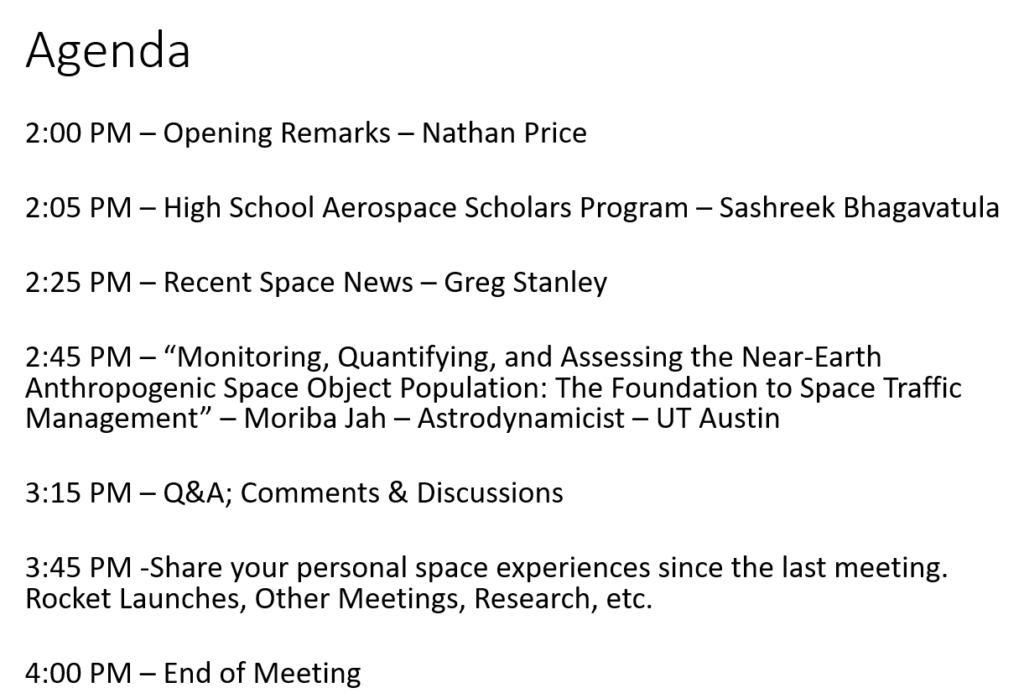
Nathan Price, NSS North Houston Space Society President, opened with a few remarks to set the stage of why we have these meetings and what the point of it is. Our future can be an amazing thing. We can address all resource issues, have unlimited opportunity and adventure for all. This is the promise of space exploration. There is more off of the earth than on it.
Imagine a future where energy is limitless, all metals and resources are cheap, and we are constantly pushing the boundaries of what we know and what we can do.
The alternative is that we need to stick with what we have. And we need to get as much of it for ourselves as possible. Because in order for us to have something, some believe, we must take it from others.
But this is a false choice. What is more limited than land? “Invest in land, because they are not making any more of it.” was investment advice I once heard. But yet, the crops produced from land has change radically overtime. Because we learned better ways to grow crops. And the amount of labor to grow those crops have plummeted overtime.
Every brain that we put towards solving the actual physical problems of humanity, the better it is for everyone. And sometimes that person with the key insight that opens doors for all of us, comes from the most unexpected place.



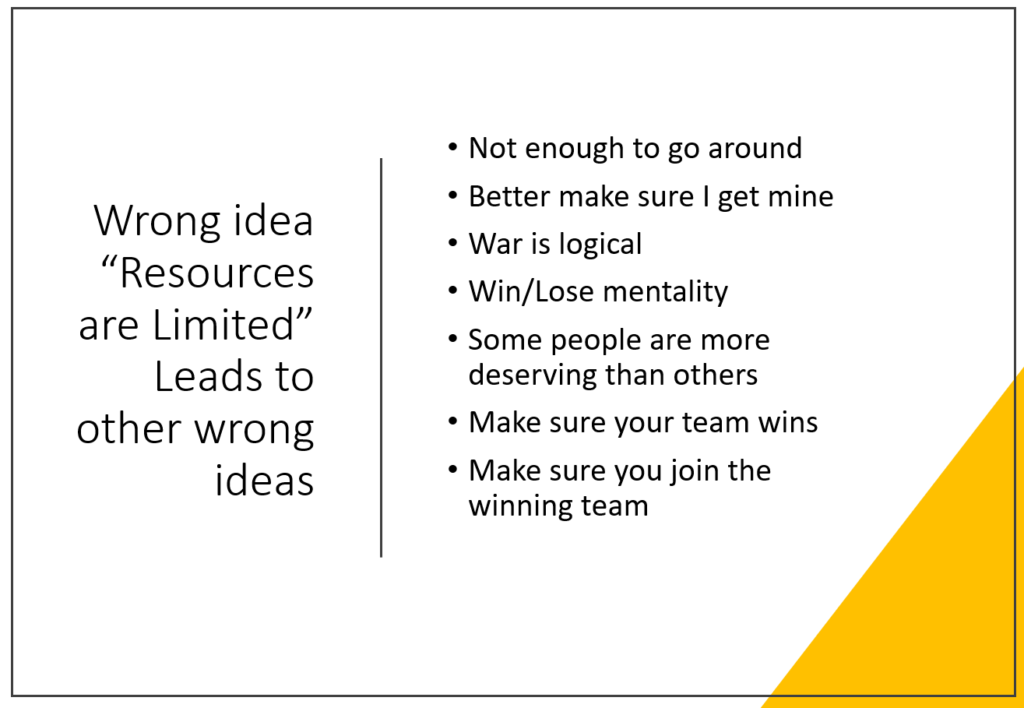
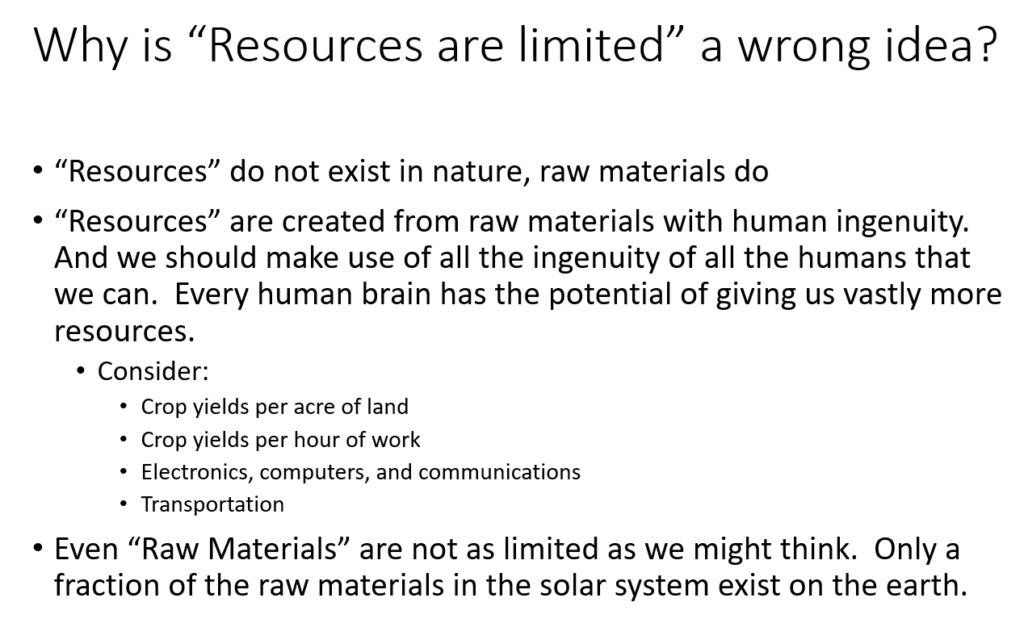

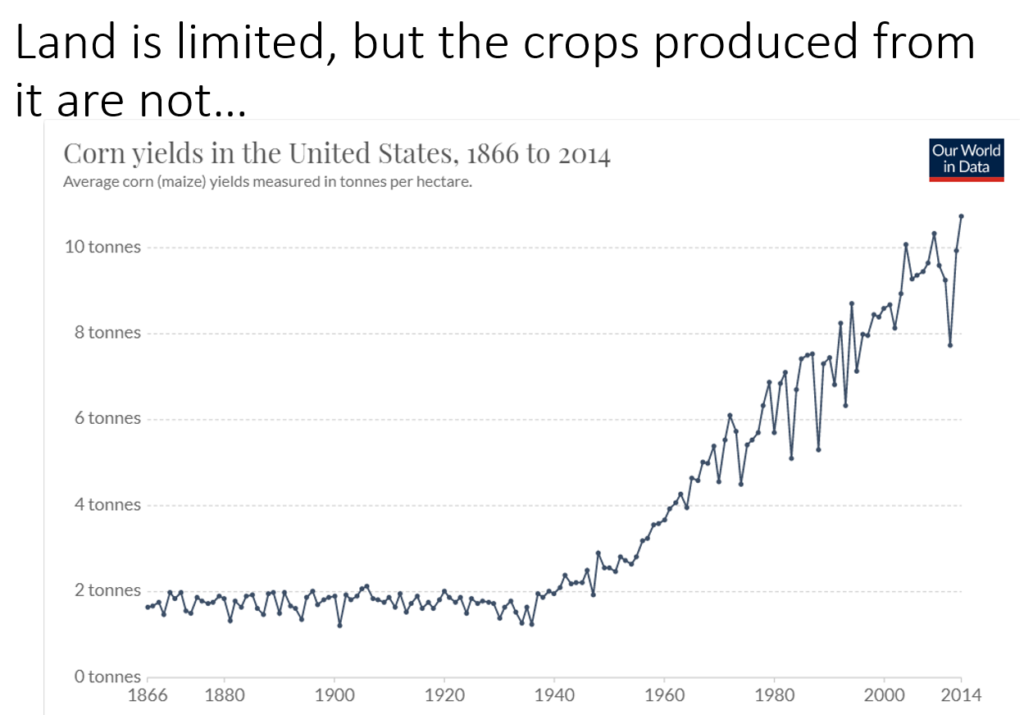
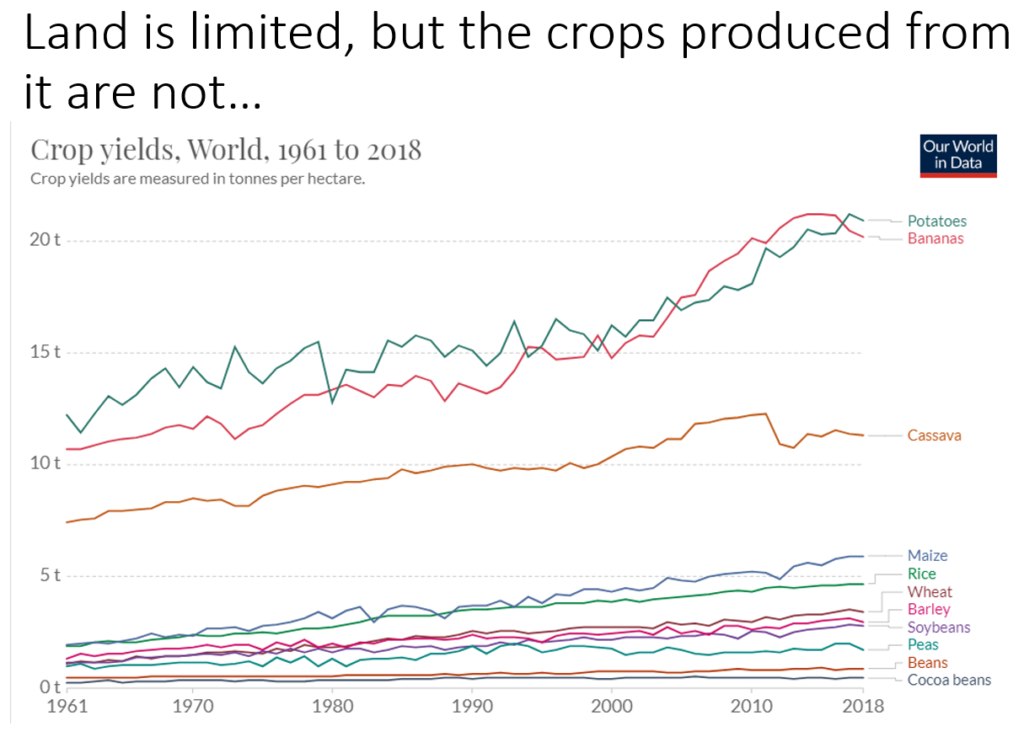
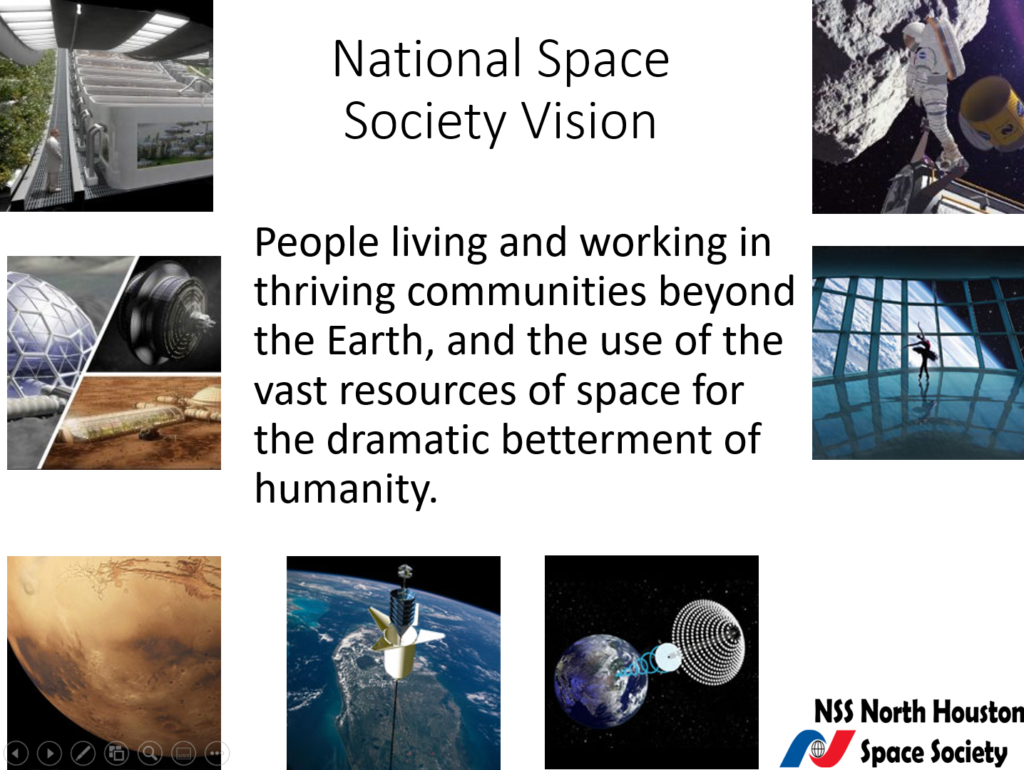
Sashreek Bhagavatula had participated in the High School Aerospace Scholars program. This program is available to Texas high school juniors that are US Citizen. It is a year long virtual relationship with NASA includes Interactive lessons on NASA activities related to space exploration, earth science, technology and aeronautics, Design challenges such as 3D drawing, video creation and interactive poster design, and Virtual chats with NASA engineers and scientists.
The highest achieving students get to go to an one week workshop at the Johnson Space Center. There they get to participate on Team projects and briefings directed by NASA engineers and scientists. And perform a Hands-on design challenge and engineering activities planning an Artemis-themed mission. And get tours of NASA facilities.
If you are interested in applying, then check out their website:
https://nas.okstate.edu/has/index.html
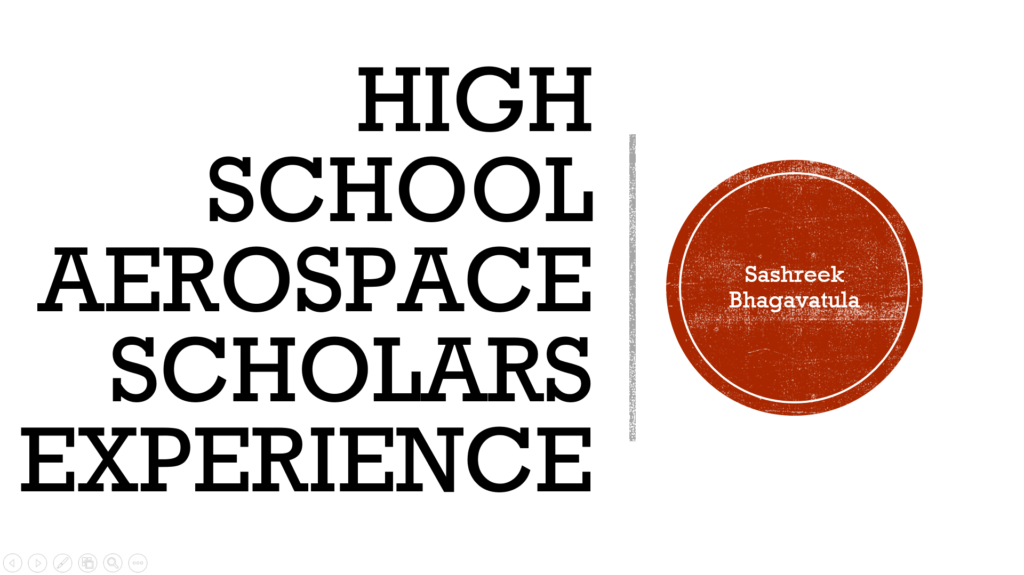
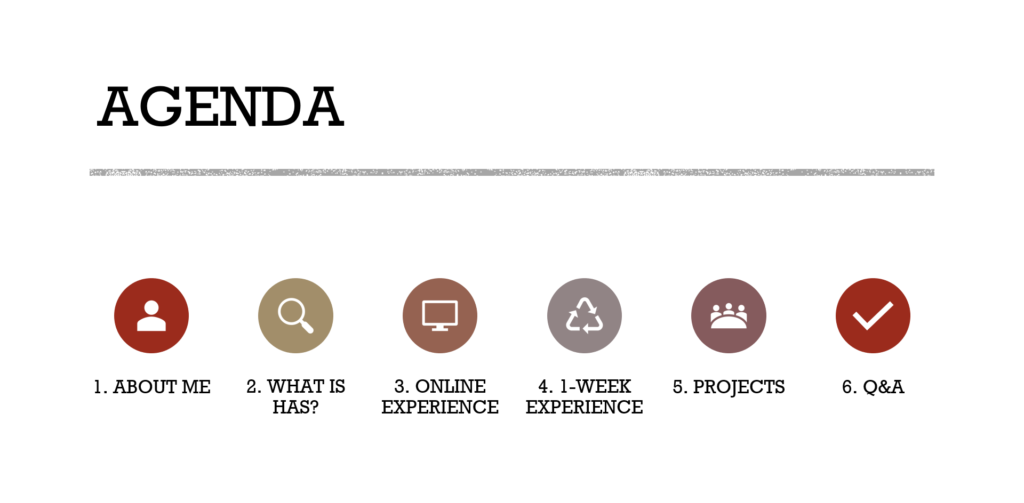

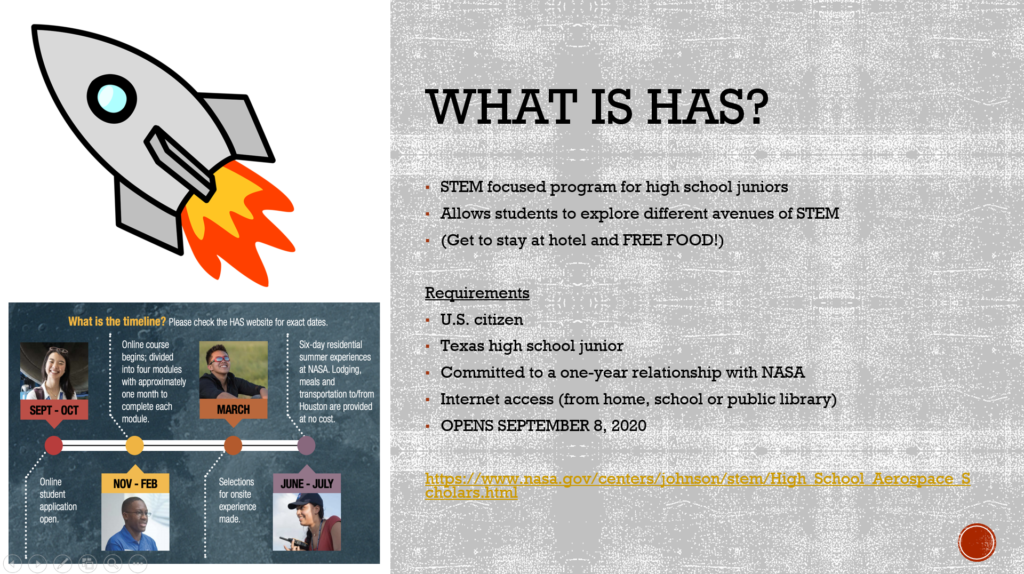
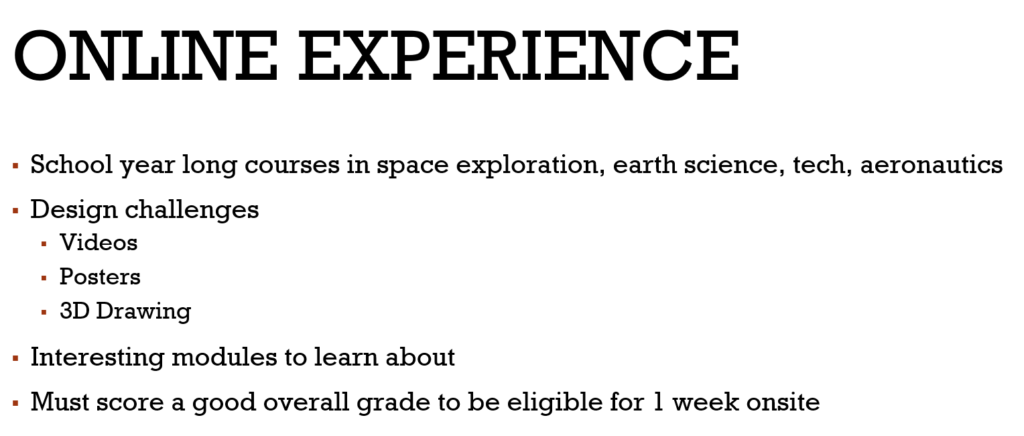
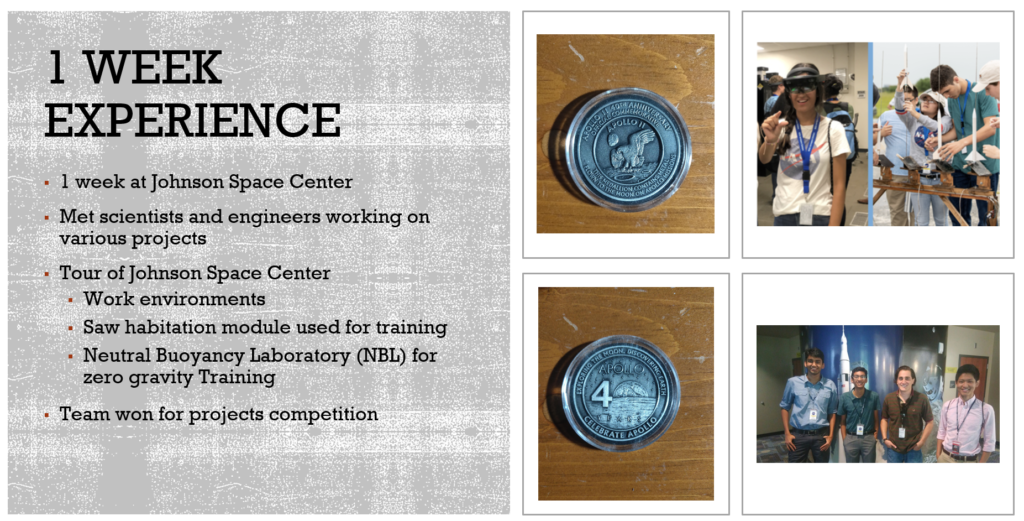
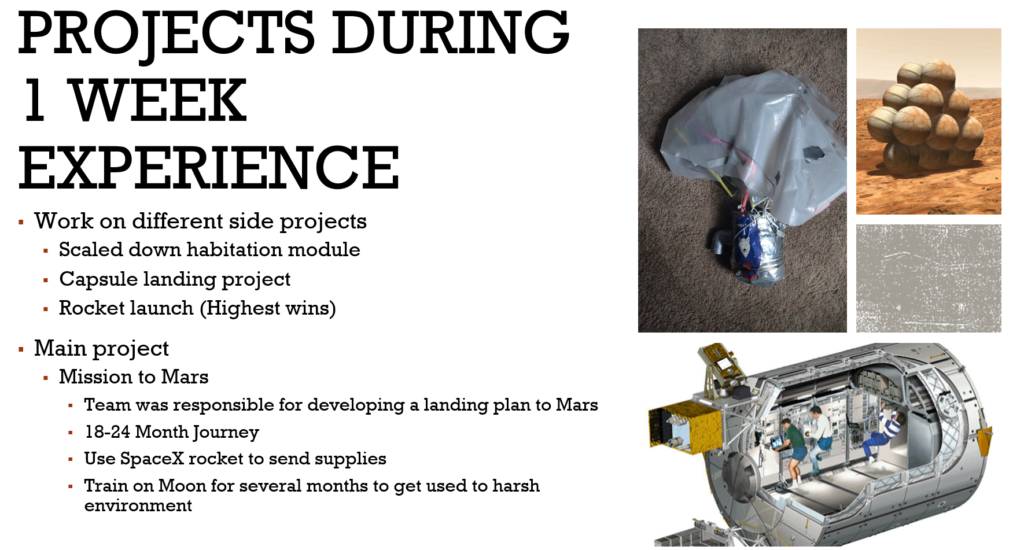
Important dates:
| Application Opens | Tuesday, September 8, 2020 |
| Information Session | Wednesday, September 23, 2020 from 6 to 7 p.m. CDT Click Here for info session. |
| Information Session | Tuesday, October 6, 2020 from 5 to 6 p.m. CDT Click Here for info session. |
| Information Session | Wednesday, October 14, 2020 from 4 to 5 p.m. CDT Click Here for info session. |
| Application Closes | Wednesday, October 21, 2020, 2 p.m. CDT |
| Online Session | November 2020 – February 2021 |
| Student Selections | April 2021 |
| Onsite Workshops | TBD |

There is an increasing amount of space exploration and development activity between each of the meetings that we could easily devote the entire meeting just reviewing what has happened in the past month. Greg Stanley did a wonderful job of sifting through all the bits of news and bringing out some of the key points.
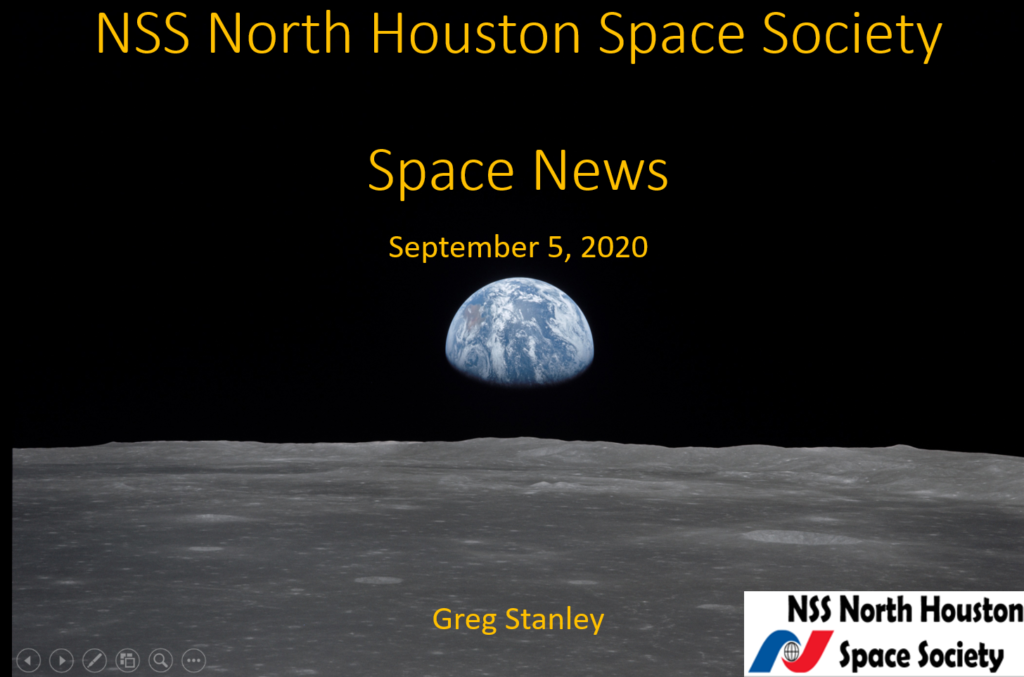
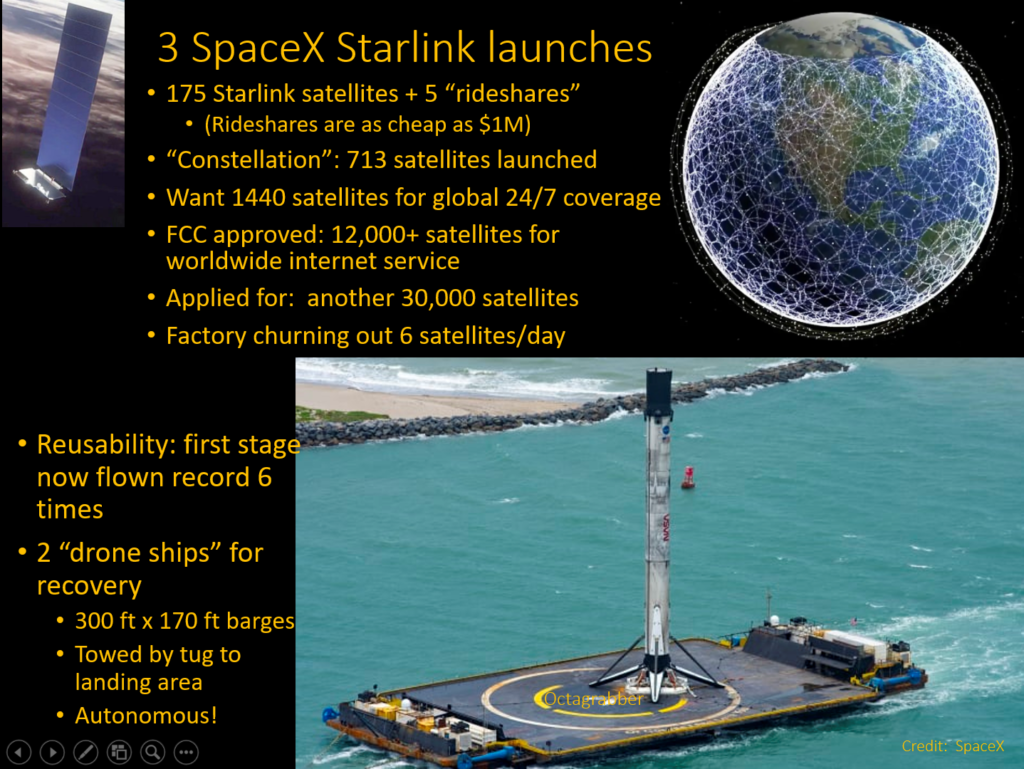
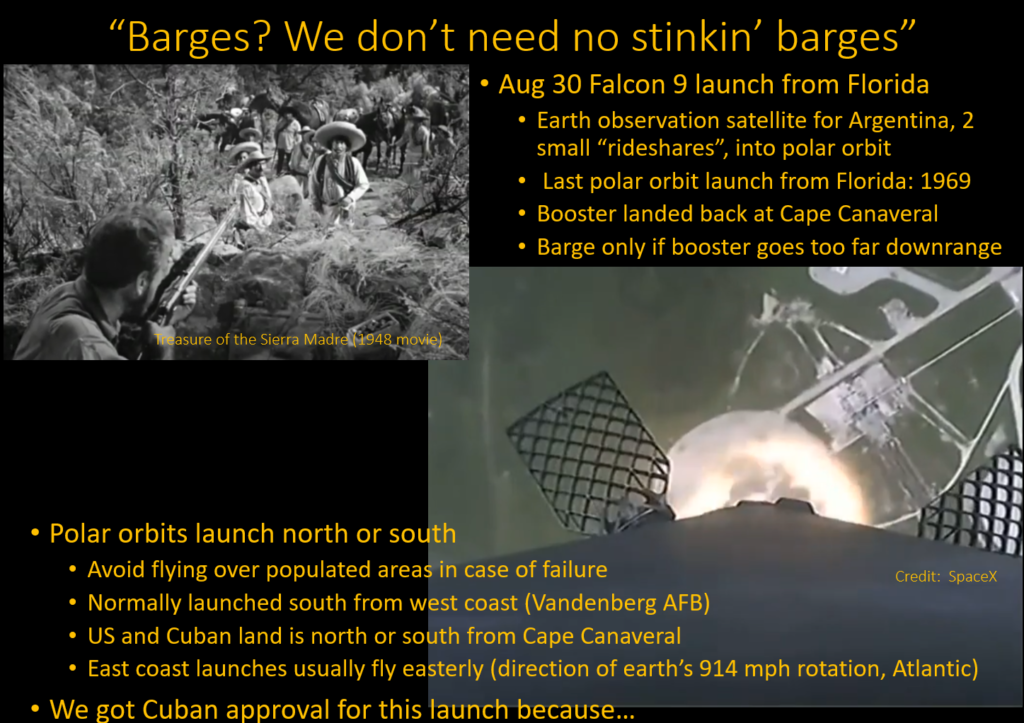
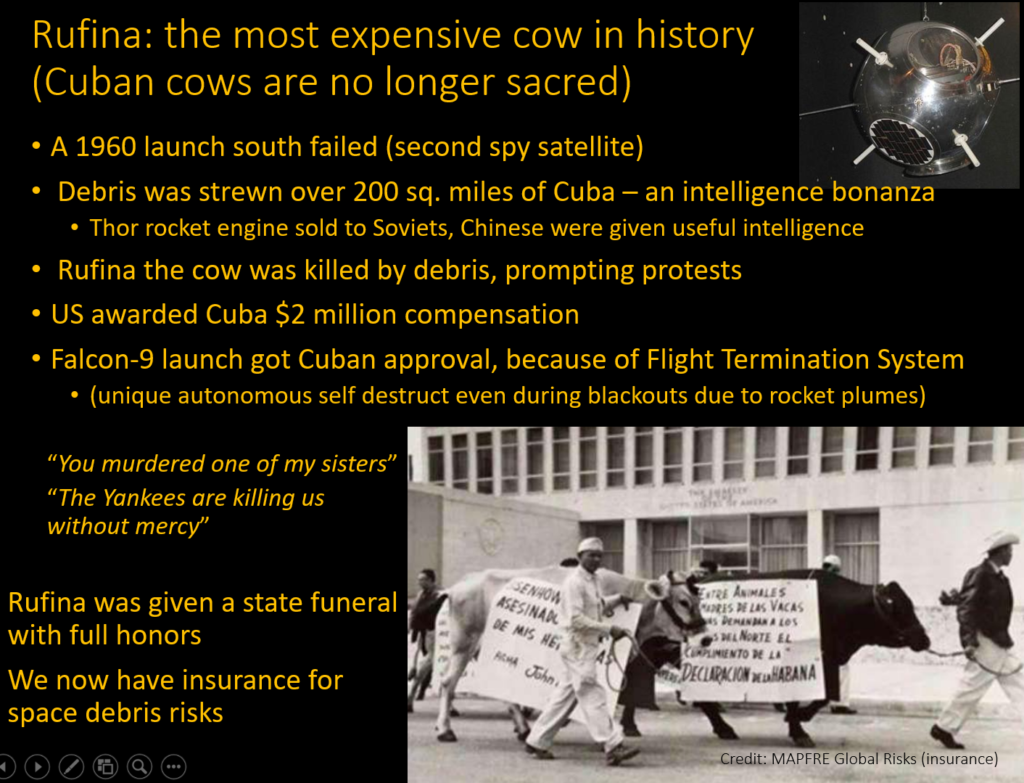
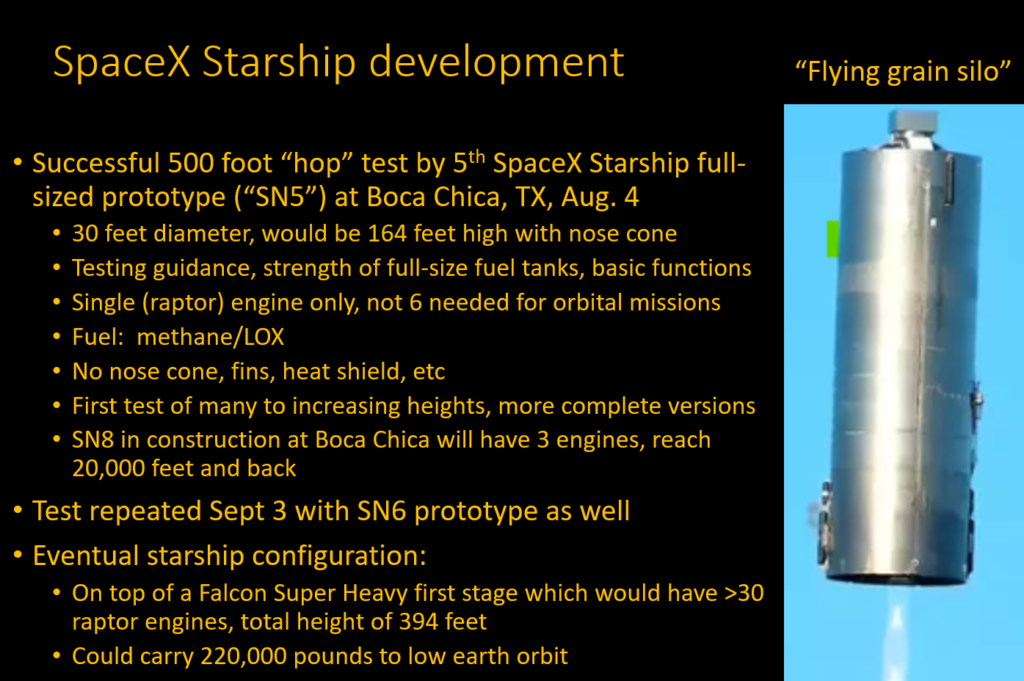
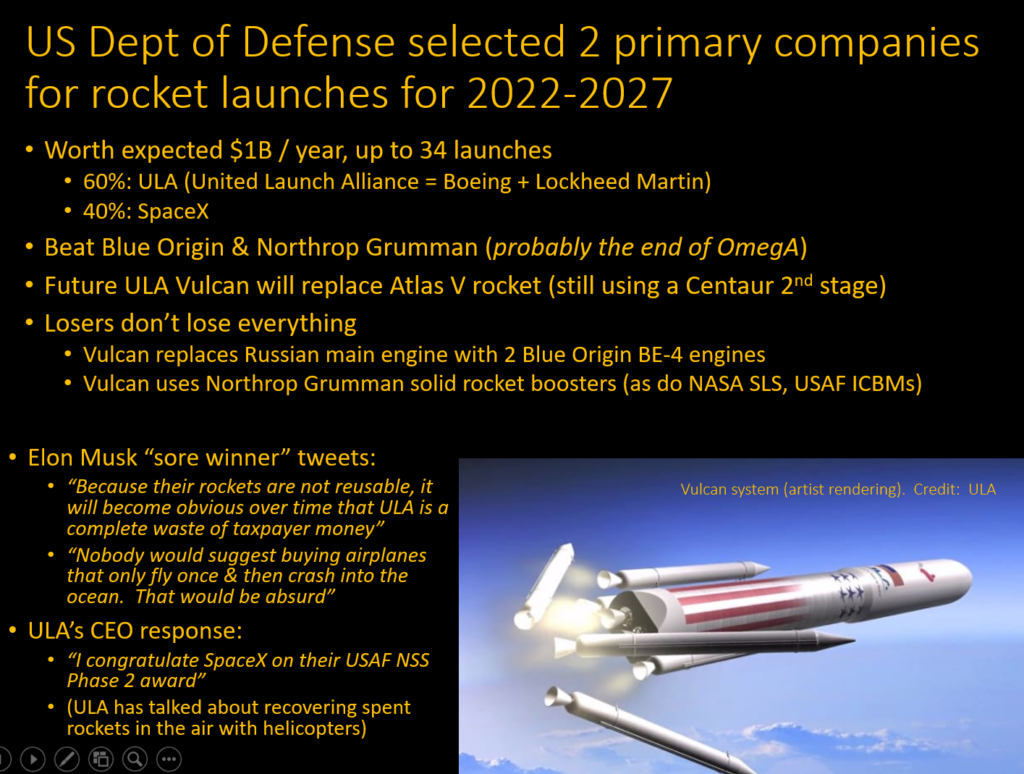
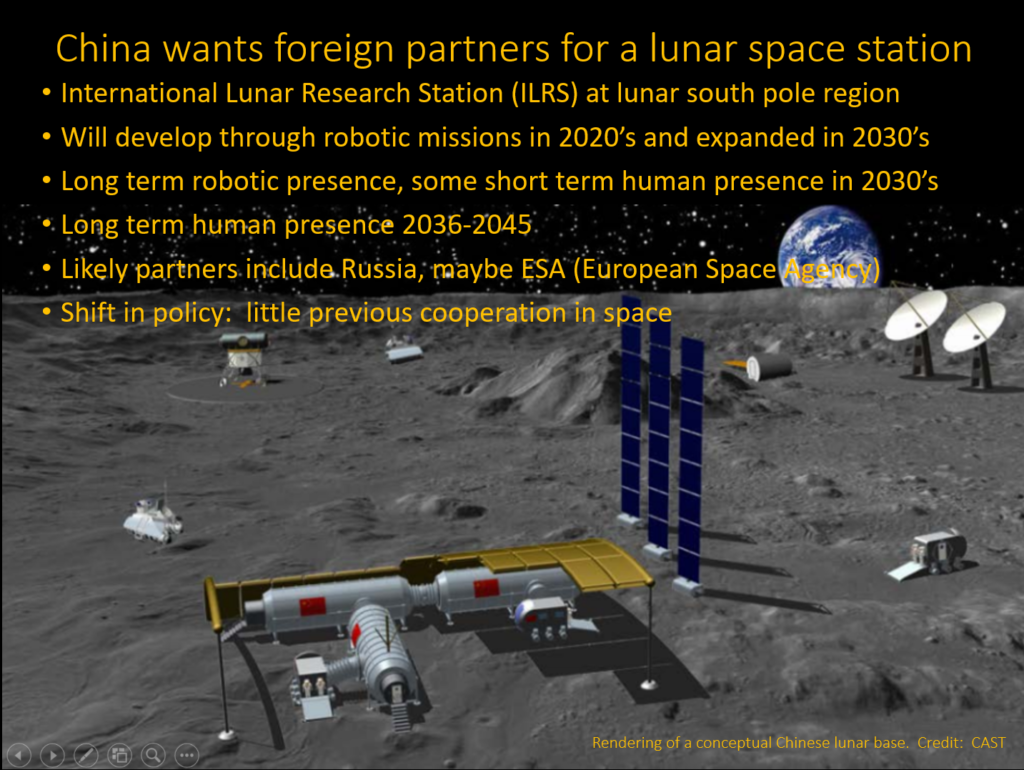
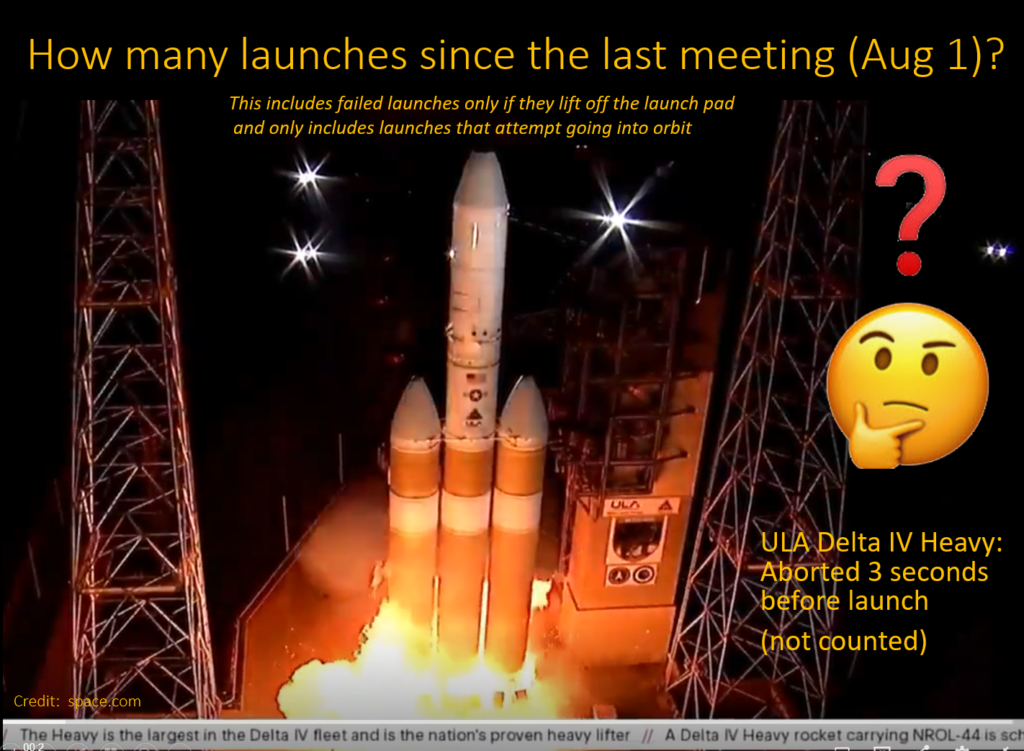
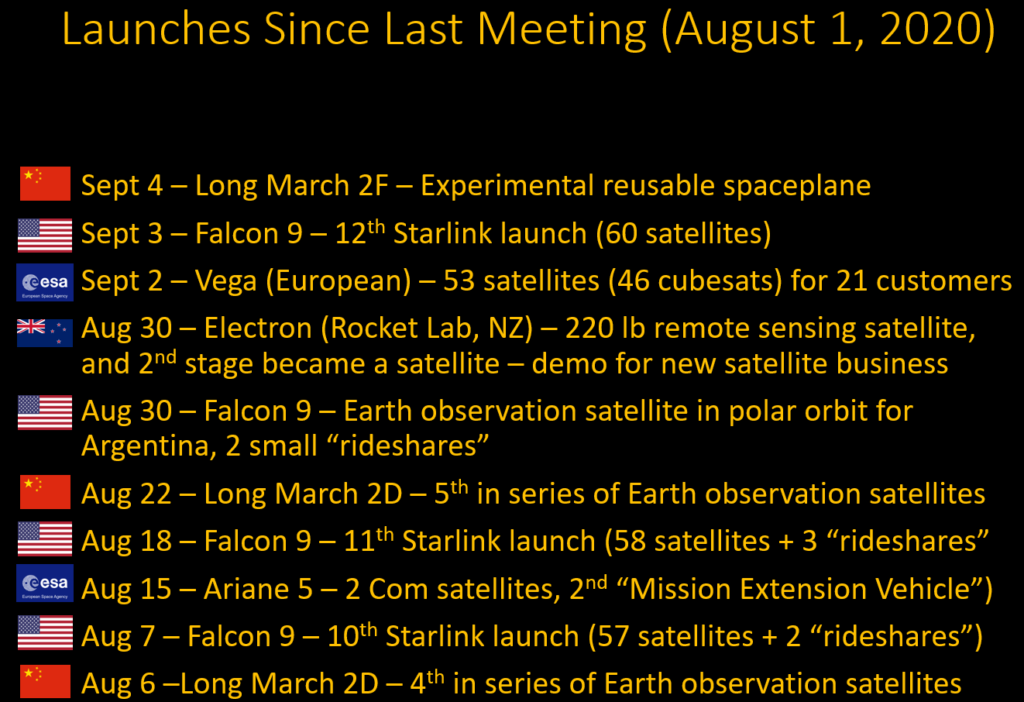
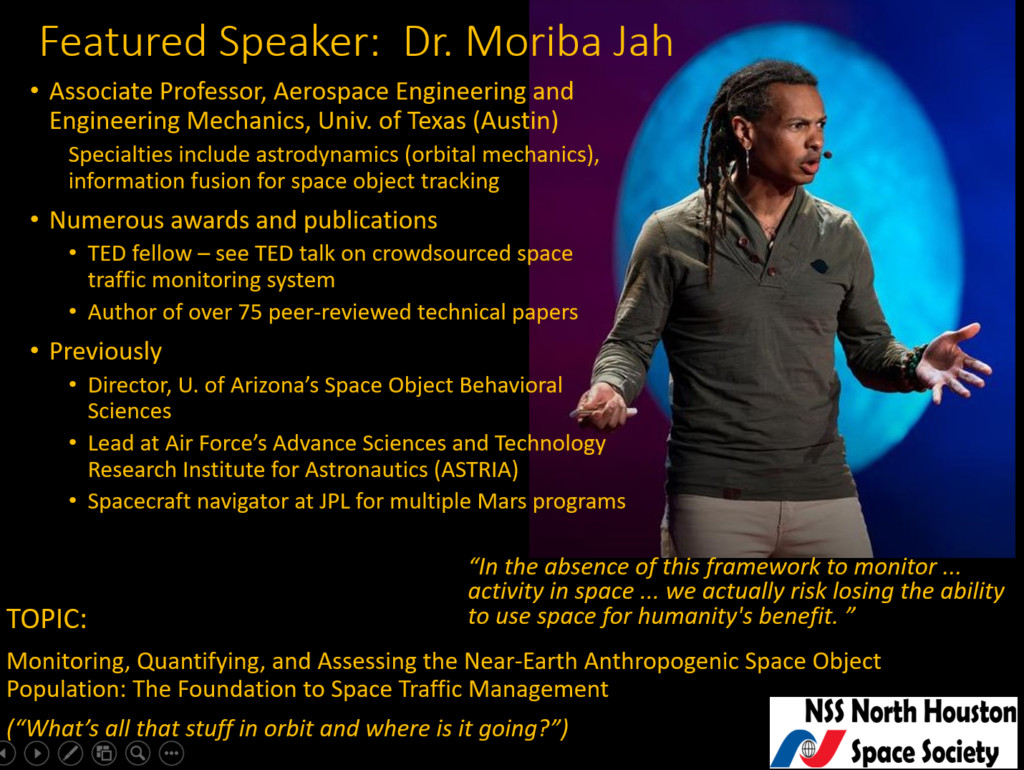
Dr. Moriba Jah described the challenges with observing, tracking, and predicting orbital debris in the near earth environment. He has been working with colleagues and students to create a set of tools that help to combine information from multiple sources and to create a common way of sharing the data and communicating about it.
http://astria.tacc.utexas.edu/AstriaGraph/
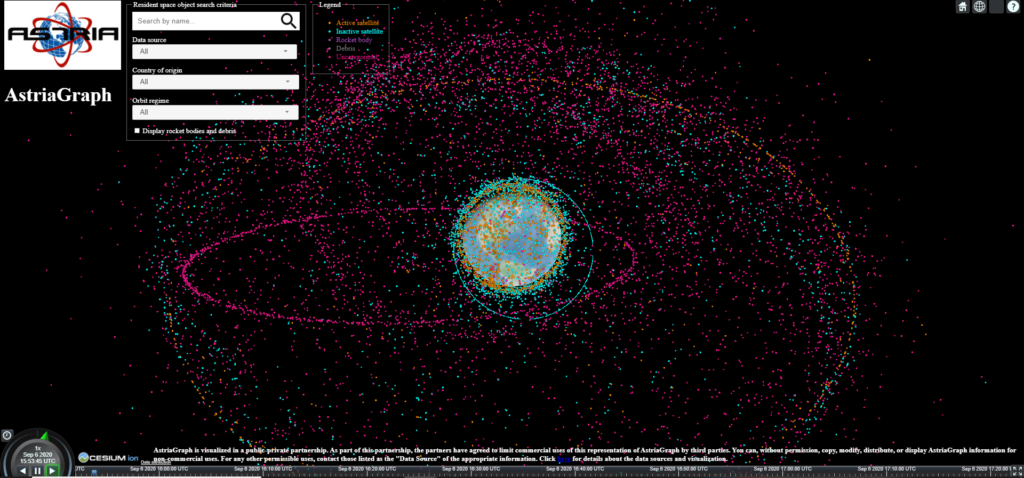
Join us for our Monthly NSS North Houston Space Society (http://NorthHoustonSpace.org) meeting. Come join others who are excited about exploring the cosmos, learning how to use the resources of space to improve human life, and who want to go and spread humanity to the rest of the universe.
The meeting will be on Saturday, September 5, 2020 at 2PM (CDT) ONLINE Via ZOOM: https://us02web.zoom.us/j/85216600533
Tentative Agenda:
2:00 PM – Opening Remarks – Nathan Price
2:05 PM – High School Aerospace Scholars Program – Sashreek Bhagavatula
2:25 PM – Recent Space News – Greg Stanley
2:45 PM – “Monitoring, Quantifying, and Assessing the Near-Earth Anthropogenic Space Object Population: The Foundation to Space Traffic Management” – Moriba Jah – Astrodynamicist – UT Austin
3:15 PM – Q&A
3:30 PM – Space Communicator Speech
3:45 PM -Share your personal space experiences since the last meeting. Rocket Launches, Other Meetings, Research, etc.
4:00 PM – End of Meeting
Sashreek will be talking about his experience in the High School Aerospace Scholars Program. He participated in this program the summer before his senior year of high school. It is a great experience for those interested in the STEM career field and gives you great insight into the various project NASA works on.
Sashreek is a senior at Texas A&M University studying Computer Engineering. His interests lie in Software Engineering, Data Science, and Entrepreneurship. Sashreek previously worked at State Street Corporation as a Software Engineer and Chevron as a Data Engineer. Sashreek also serves as the Director of Technology for the non-profit organization PEAC (Promoting Education Across the Country). Outside of his academic life, Sashreek plays tennis, loves learning about space and innovative technologies, and enjoys reading comics.
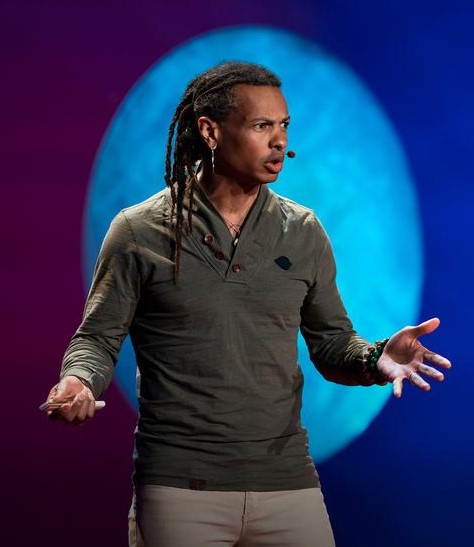
Dr. Moriba Jah joined the Department of Aerospace Engineering and Engineering Mechanics in 2017. His research interests are in non-gravitational astrodynamics and advanced/non-linear multi-sensor/object tracking, prediction, and information fusion. His expertise is in space object detection, tracking, identification, and characterization, as well as spacecraft navigation.
He received his B.S. in Aerospace Engineering from Embry-Riddle Aeronautical University, Prescott, Arizona, and his M.S. and Ph.D. in Aerospace Engineering Sciences from the University of Colorado at Boulder specializing in astrodynamics and statistical orbit determination.
Prior to being at UT Austin, Dr. Jah was the Director of the University of Arizona’s Space Object Behavioral Sciences with applications to Space Domain Awareness, Space Protection, Space Traffic Monitoring, and Space Debris research to name a few. Preceding that, Dr. Jah was the lead for the Air Force Research Laboratory’s (AFRL) Advanced Sciences and Technology Research Institute for Astronautics (ASTRIA) and a Principal Investigator for Detect/Track/Id/Characterize Program at AFRL’s Space Vehicles Directorate.
Before joining AFRL in 2007, he was a spacecraft navigator for NASA’s Jet Propulsion Laboratory (JPL) in Pasadena, CA, serving on Mars Global Surveyor, Mars Odyssey, Mars Express (joint mission with ESA), Mars Exploration Rovers, Hayabusa (joint mission with JAXA), and the Mars Reconnaissance Orbiter.
Dr. Jah is a member of the Astrodynamics Technical Committee of the International Astronautical Federation (IAF) and a permanent member of the Space Debris Technical Committee of the International Academy of Astronautics (IAA). He is a Fellow of the International Association for the Advancement of Space Safety (IAASS), the AFRL, the AAS and the Royal Astronomical Society (RAS), as well as an AIAA Associate Fellow, IEEE Senior Member, Associate Editor of the IEEE Transactions on Aerospace and Electronics Systems, IEEE Aerospace and Electronic Systems Magazine, and Elsevier Information Fusion Journal.
Dr. Jah is a world-recognized subject matter expert in astrodynamics-based Space Domain Awareness sciences and technologies with 75+ publications in peer-reviewed journals, conferences, and symposia. He’s been an invited lecturer and keynote speaker at 20+ national and international space events, workshops and fora.
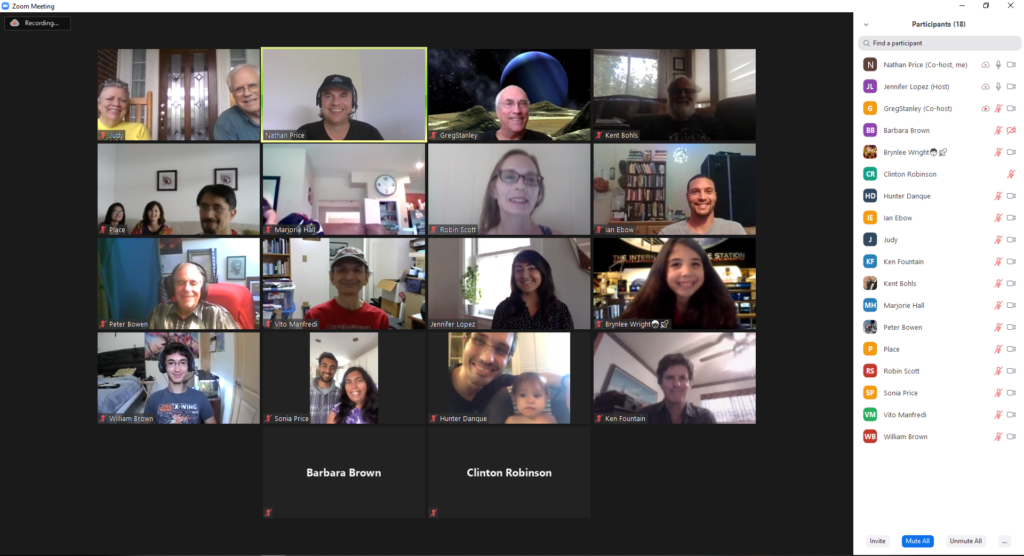



All of life that we know, all of civilization, everything has only been on the earth. We know by looking at other stars that our sun (in a billion or 2 billion years) will heat up and expand ending all life on the earth. And if that is as far as we have gone, then that is the end of the line for us.

But it does not have to be, we can expand beyond earth. We can use the resources in the rest of the solar system to develop our space resources further. We can learn how to travel to other stars. These problems seem impossible to solve, but consider how far we have come. Consider how far we could go.
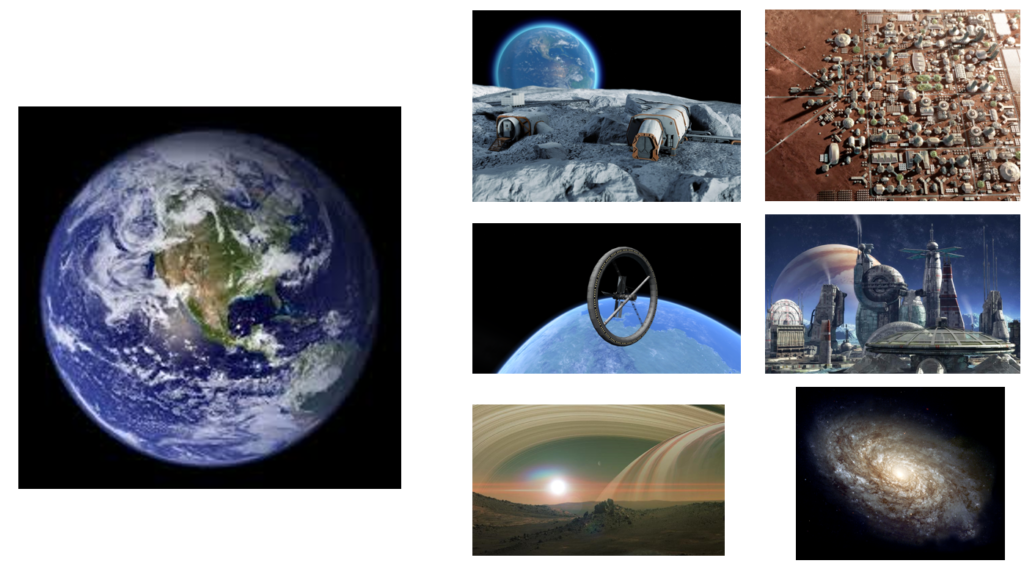
This is the vision of the National Space Society (NSS). We want to see people living in communities beyond the earth. And we want to use the vast resources of space of the dramatic benefit of humanity (all of humanity).
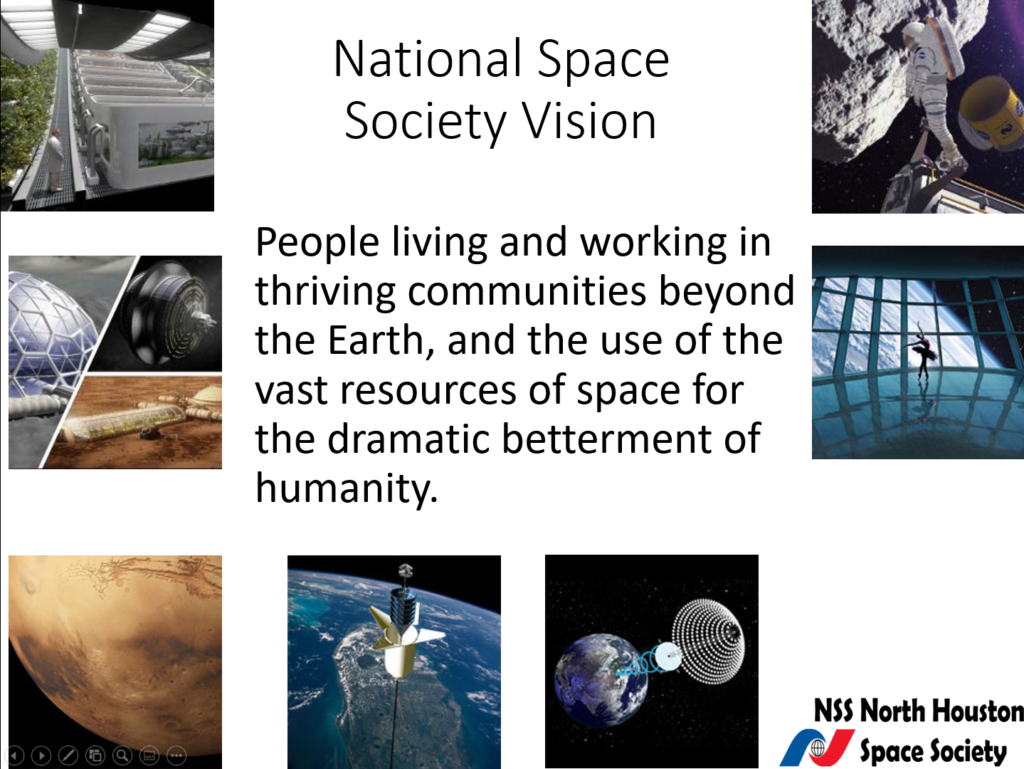
North Houston Space Society is a chapter of the NSS. We seek to educate ourselves and our community about all the events that are happening in space, the potential that space offers to humanity, and ways that we can work to realize that benefit.
We do this by having monthly meetings where we get updates on recent space news, invite speakers from industry, and work to expand the vision and reach of humanity.
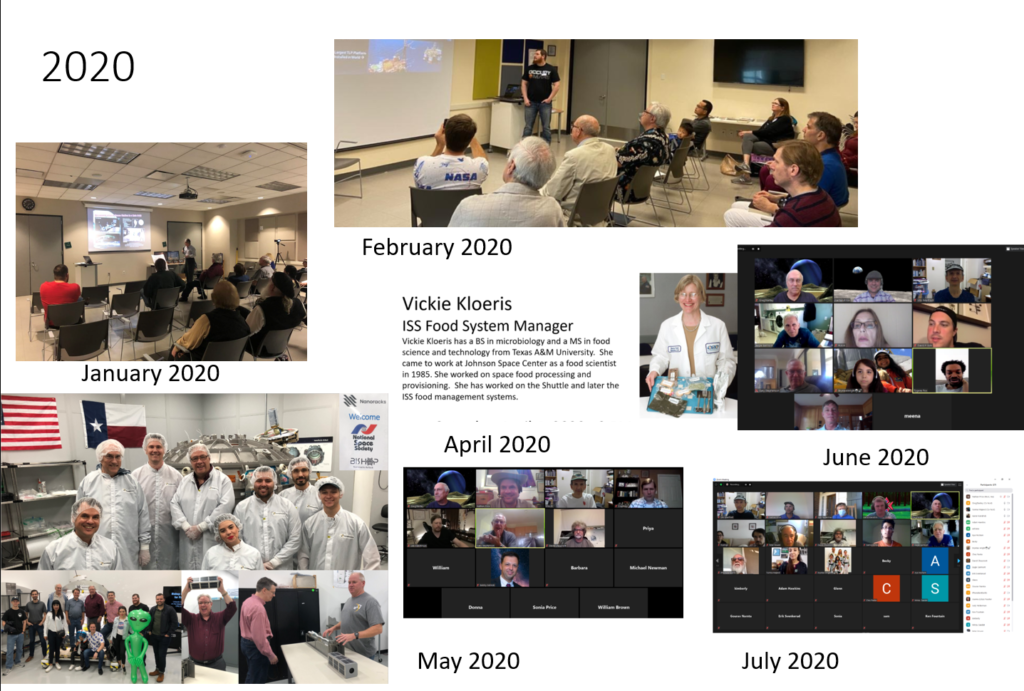
We also work to develop our ability to communicate the benefits and challenges of space through programs like the Space Communicators program. This involves giving three short speeches. Each in one of these categories.
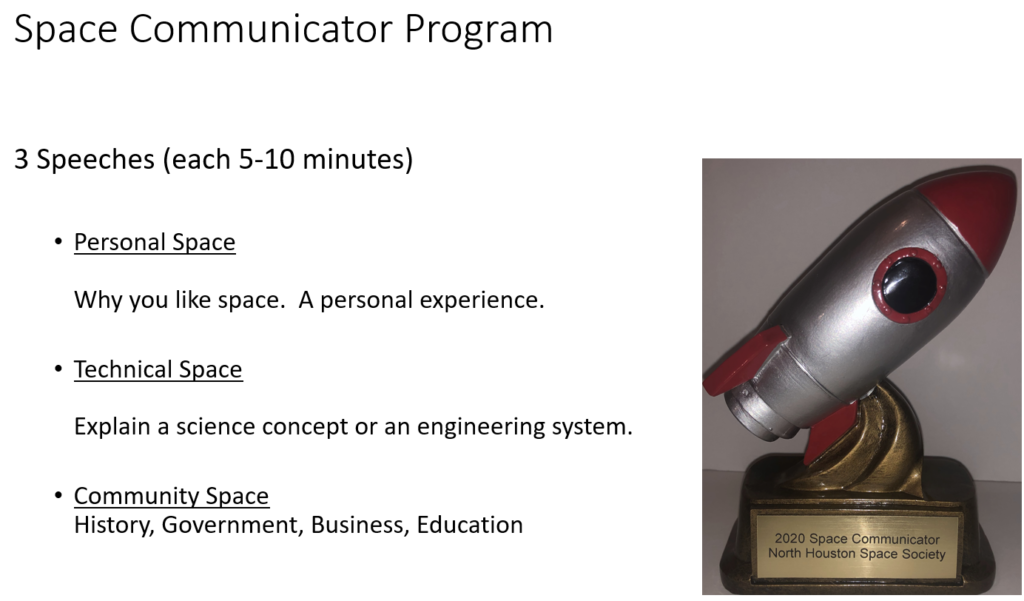
Brynlee Wright gave her first speech today. Starting with her personal space speech.
Greg Stanley then gave us an update on recent space news, focusing on the recent Mars missions.

Then we had Jennifer W. Lopez from Astrobotic talk about the work that her company is doing to open up access to the lunar surface.
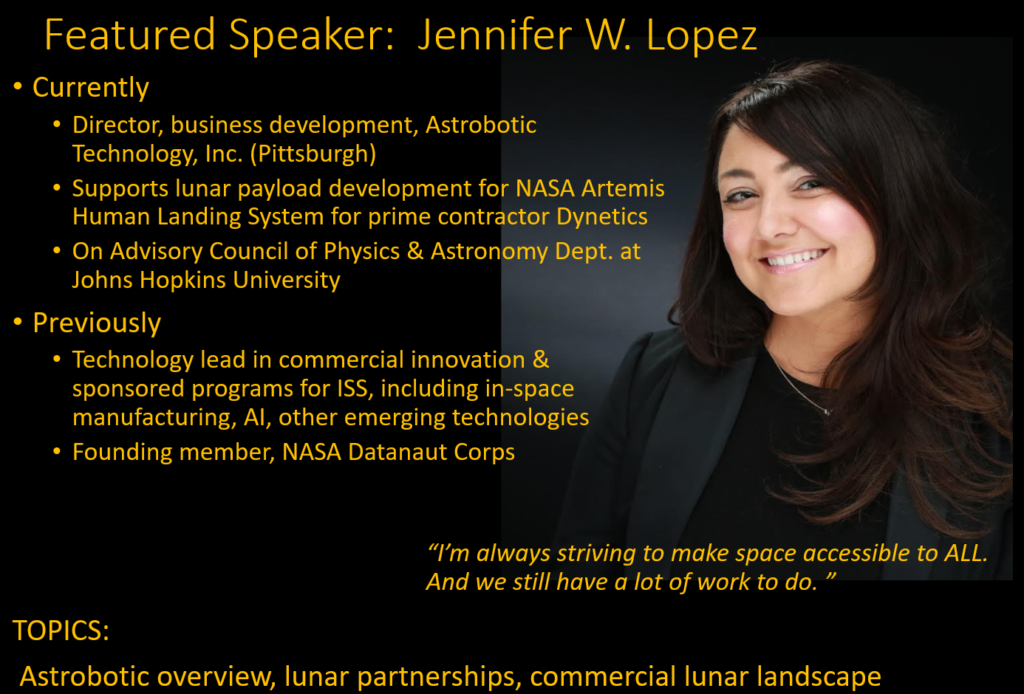
Join us for our Monthly NSS North Houston Space Society (http://NorthHoustonSpace.org) meeting. Come join others who are excited about exploring the cosmos, learning how to use the resources of space to improve human life, and who want to go and spread humanity to the rest of the universe.
The meeting will be on Saturday, August 1, 2020 at 2PM (CDT) ONLINE Via ZOOM: https://us02web.zoom.us/j/85216600533
Agenda:
2:00 PM – Opening Remarks – Nathan Price
2:05 PM – Space Communicator Speech
2:10 PM – Recent Space News – Greg Stanley
2:30 PM – Jennifer Lopez, Director of Business Development, Astrobotic
Astrobotic overview, lunar partnerships & sponsorships, commercial lunar landscape
3:15 PM – Q&A
3:30 PM – Share your personal space experiences since the last meeting. Rocket Launches, Other Meetings, Research, etc.
4:00 PM – End of Meeting
Featured Speaker: Jennifer Lopez
Director of Business Development, Astrobotic

Jennifer W. Lopez leads commercial lunar partnerships and sponsorships as the Director of Business Development at Astrobotic Technology, Inc., a space robotics and lunar logistics company commissioned by NASA to be the first U.S. mission to land on the Moon since the Apollo era. Astrobotic’s inaugural flight will carry more than 22 unique payloads from 6 nations and will
be the first commercial planetary mission to land on the lunar surface in 2021. Jennifer also supports lunar payload development as part of NASA’s Artemis Human Landing System in collaboration with prime contractor Dynetics, which aims to send the first woman and the next
man to the Moon by 2024.
Prior to Astrobotic, Jennifer served as the Technology Lead in Commercial Innovation and Sponsored Programs with the International Space Station U.S. National Laboratory for almost 4 years where she identified, developed, & fostered space-based R&D and breakthrough technological innovations. Research areas under her leadership included in-space
manufacturing, robotics, AI and other emerging technologies aimed to maximize utilization of the ISS for terrestrial benefit and help pave the way toward commercialization in low Earth orbit and future orbiting platforms.
Jennifer also serves on the Advisory Council of the Physics & Astronomy Department at Johns Hopkins University, a world leader in groundbreaking research in condensed matter physics, particle physics, astronomy, and astrophysics; is a founding member of the NASA Datanaut Corps program at NASA Headquarters and is a National Geographic Explorer.
About the Meeting
Meetings are open to all age groups and interest levels. Come explore with us the potential that developing and exploring space has to better life here on earth and to open up new frontiers creating new perspectives that can help enrich the human experience.
The Vision of NSS is people living and working in thriving communities beyond the Earth, and the use of the vast resources of space for the dramatic betterment of humanity.
The Mission of NSS is to promote social, economic, technological, and political change in order to expand civilization beyond Earth, to settle space and to use the resulting resources to build a hopeful and prosperous future for humanity. Accordingly, we support steps toward this goal, including human spaceflight, commercial space development, space exploration, space applications, space resource utilization, robotic precursors, defense against asteroids, relevant science, and space settlement oriented education.
Website: http://NorthHoustonSpace.org
MeetUp: https://www.meetup.com/Future-North-Houston-National-Space-Society-Chapter/
FaceBook: https://www.facebook.com/NssNorthHoustonSpaceSociety/Posted on
We had quite a few people attend our July meeting.
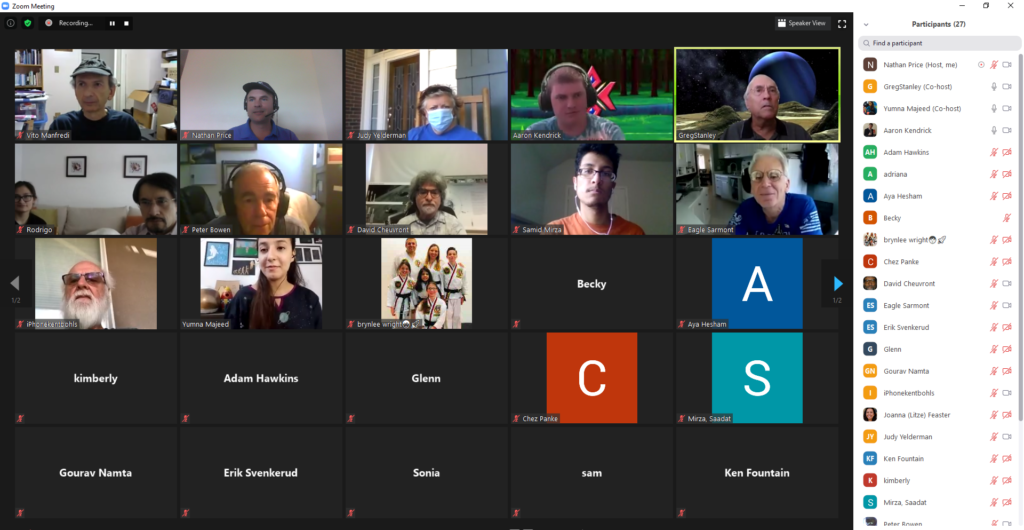
We had a packed agenda.
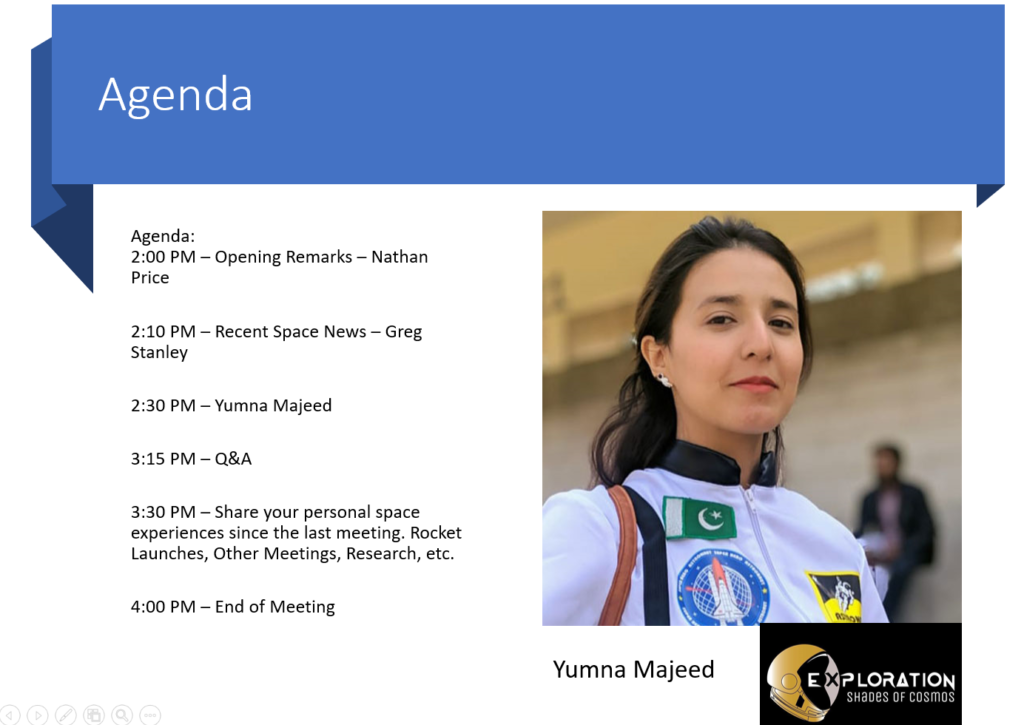
The meeting started with Nathan Price, NSS North Houston Space Society president, introducing the active environment that the earth inhabits in the solar system.
The Comet NEOWISE was just detected March 2020, and could be seen in the early morning hours of July is a reminder that we have much more to discover about our solar system and the threats and opportunities it has.
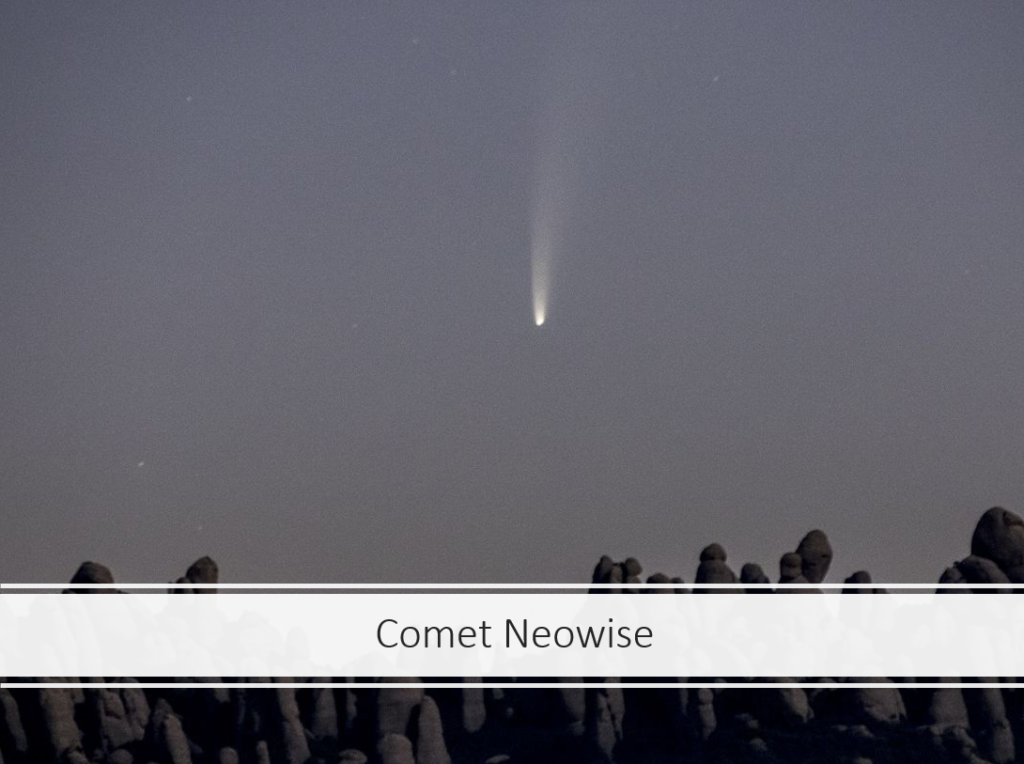
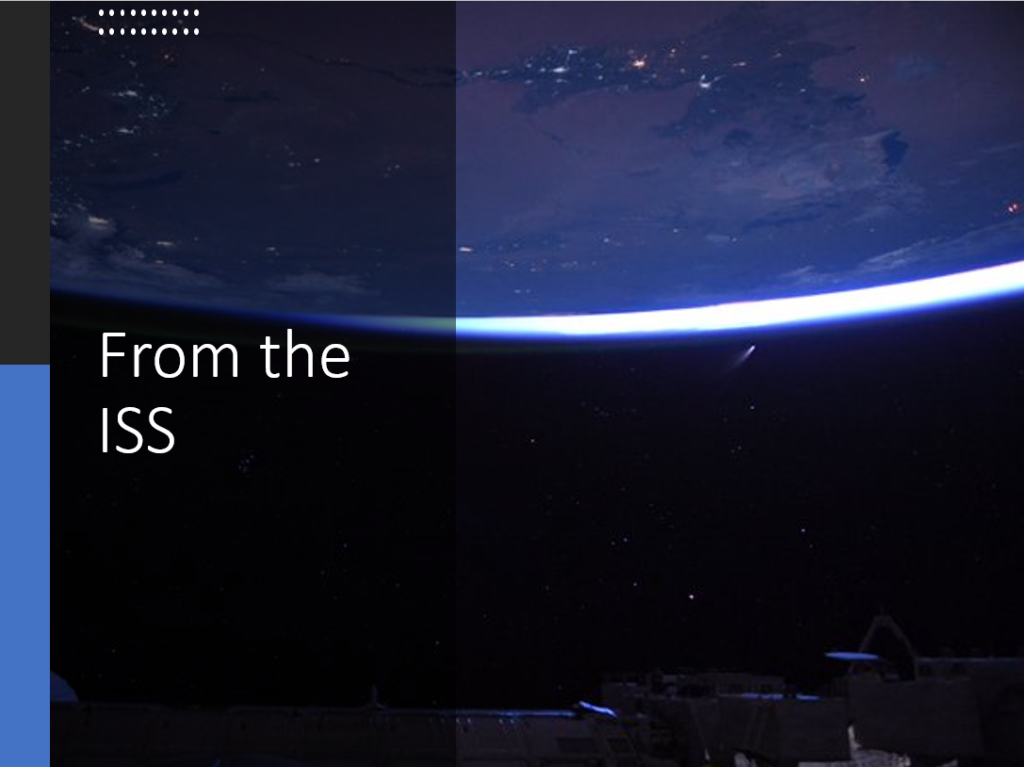

Meteors can constantly be seen from the earth. They come in all sizes. Most burn up in the atmosphere. Most of the ones that do make it through the atmosphere end up in the oceans. But occasionally they make spectacular displays. Consider these two from last month:
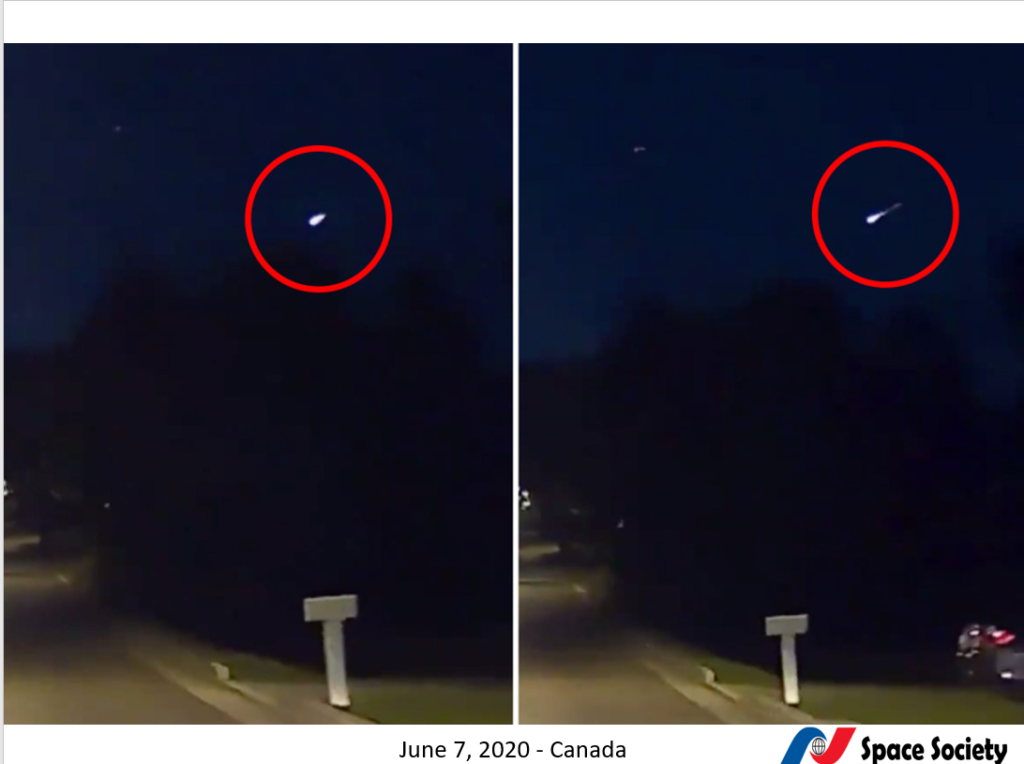
There are millions of other asteroids and comets that cross in the vicinity of earth that we have yet to discover. Consider how our knowledge has increased between 1999 and 2018.
We need to explore, monitor, and discover as many of these as we can. We need to make sure they do pose a threat to the earth or other human settlements throughout the solar system. And we need to have the capabilities to deflect, redirect, destroy the ones that do pose a danger to the earth.
But these asteroids and comets are not just a threat. They are also an opportunity. They contain data about the early days of our solar system, about parts of our solar system we may not be able to directly access, and about other star systems. They are also a source for materials. Rare Earth Metals actually come from asteroids. And the moon may have an abundance of them. We should go and see.
The National Space Society wants to raise awareness of the threats and opportunities that space poses. We want to see humanity master space and to treat space as just another domain for human activity. If you share this vision, please sign up for our mailing list and join the National Space Society.
Greg Stanley gave an awesome and thorough update on recent space news.
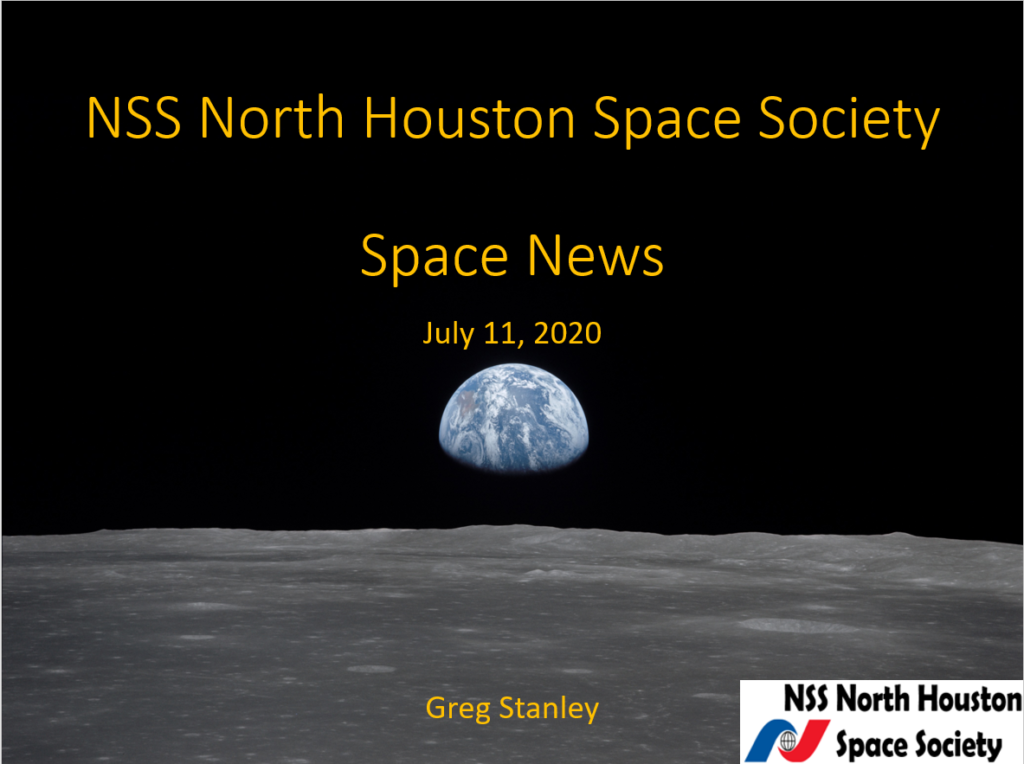
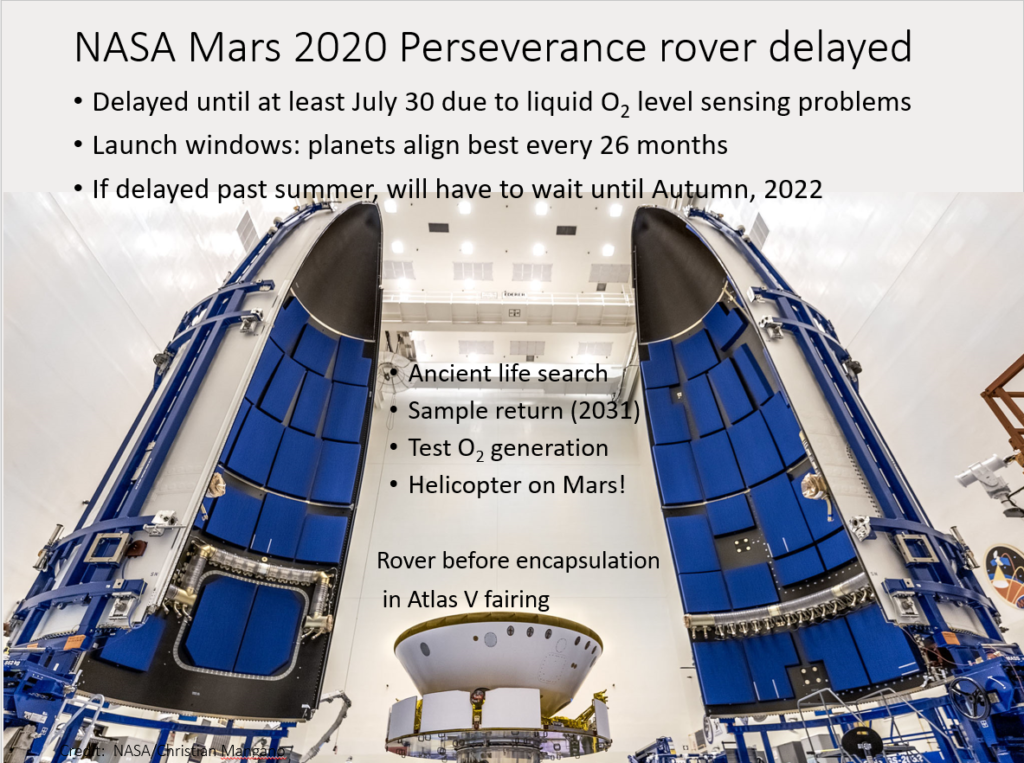
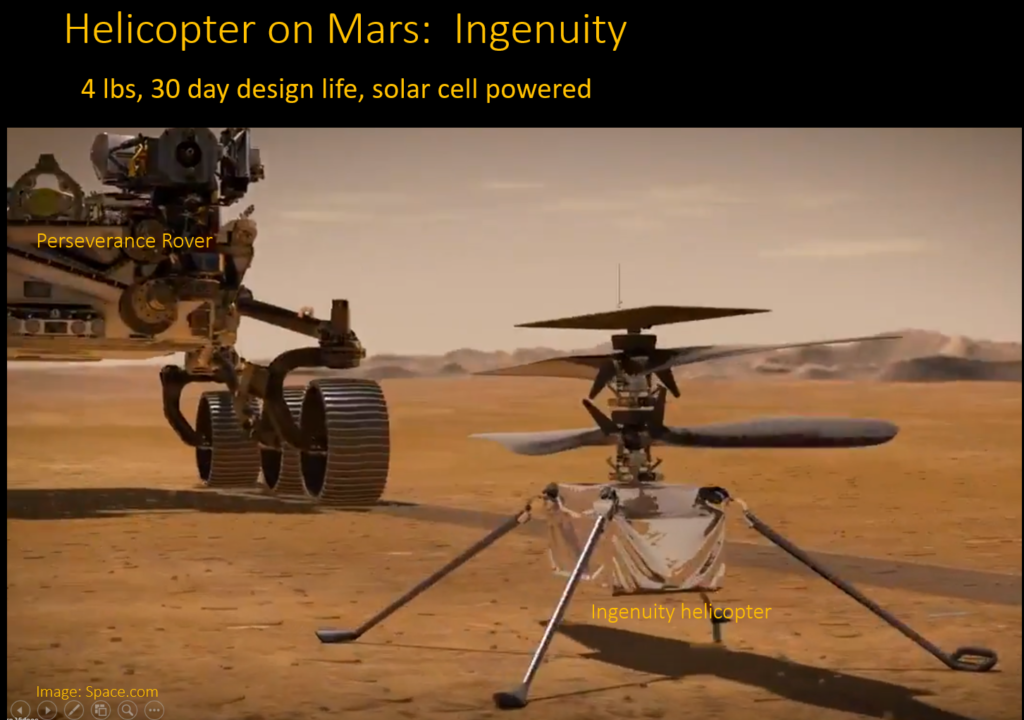
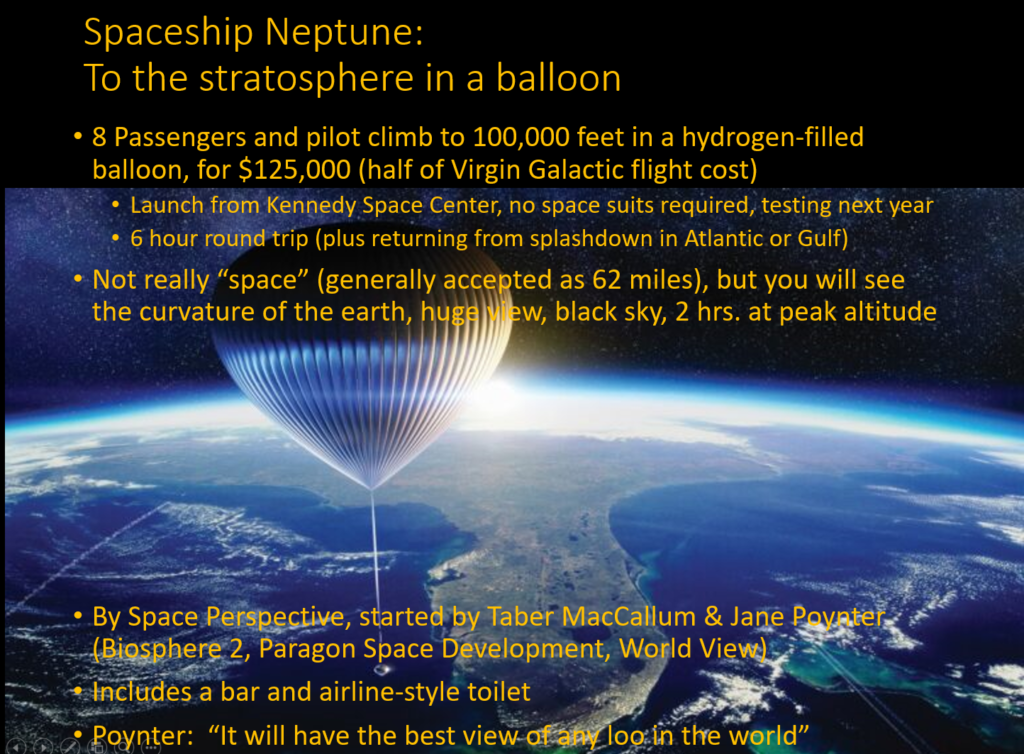
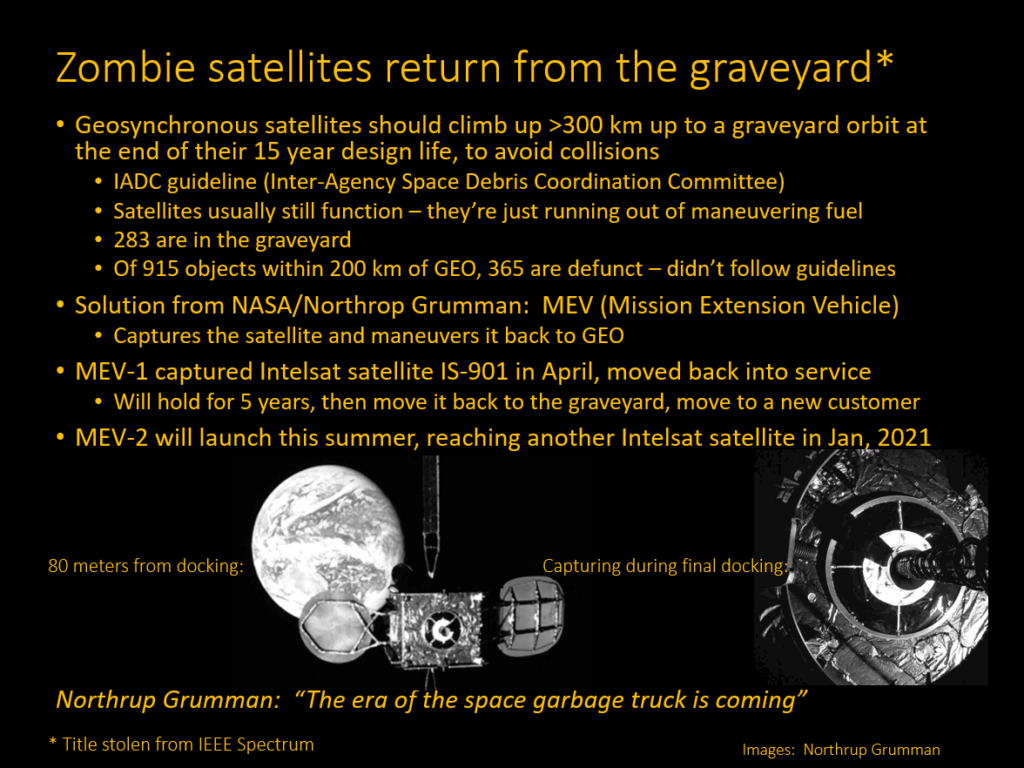
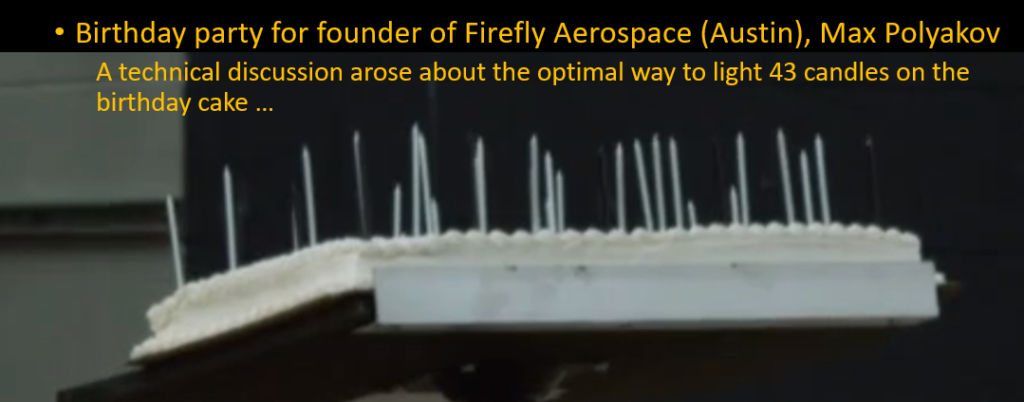
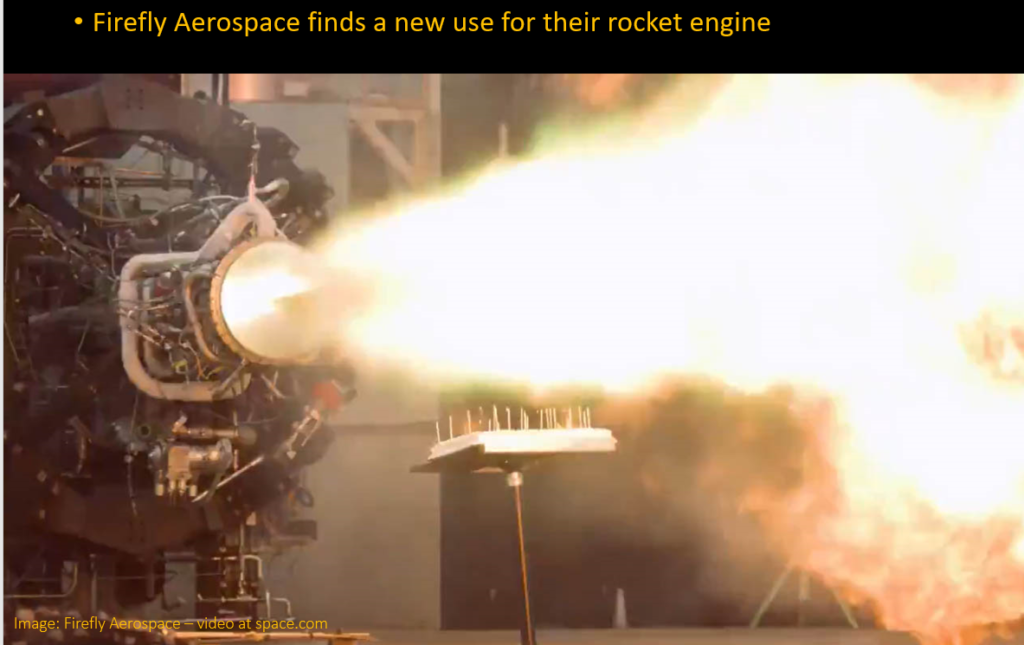
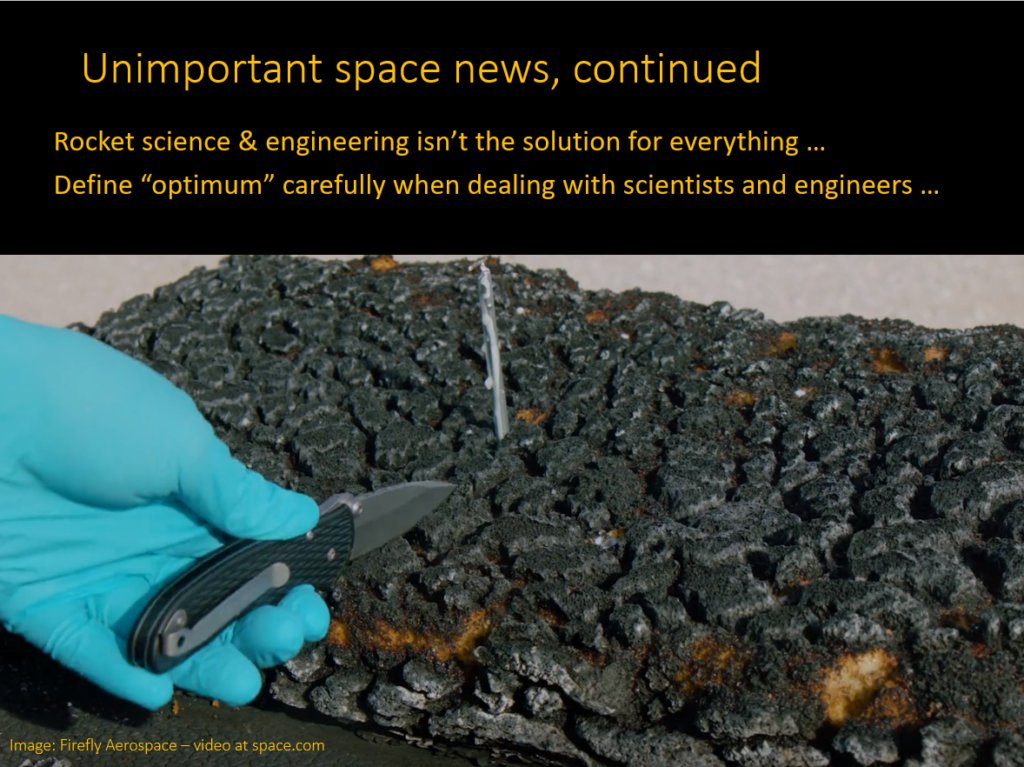
(See the video of using a Firefly rocket to light candles on birthday cake)
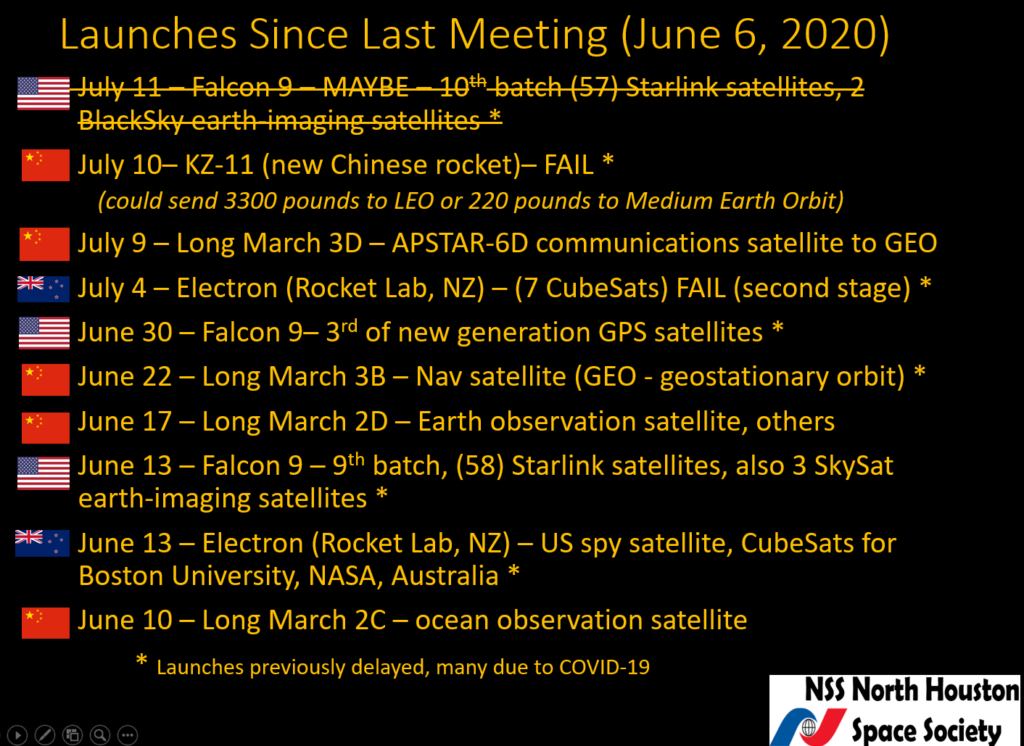
Then we had Yumna Majeed tell us about her journey and experience inspiring people in Pakistan to look up at the stars and to be inspired by the opportunity it represents.
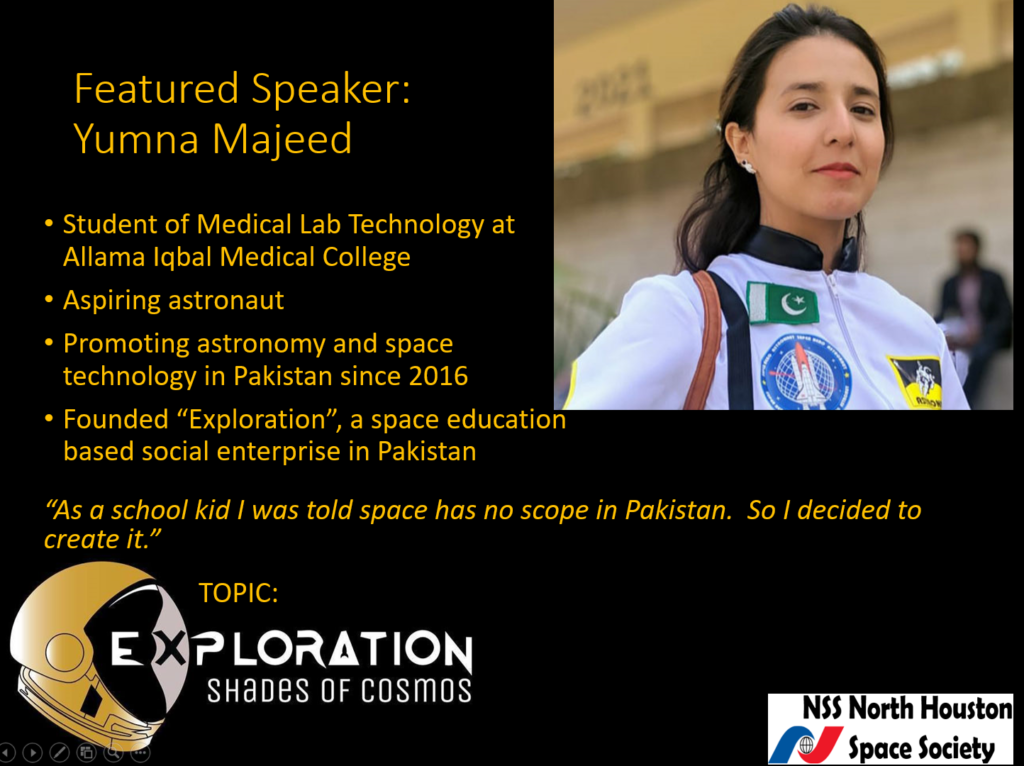
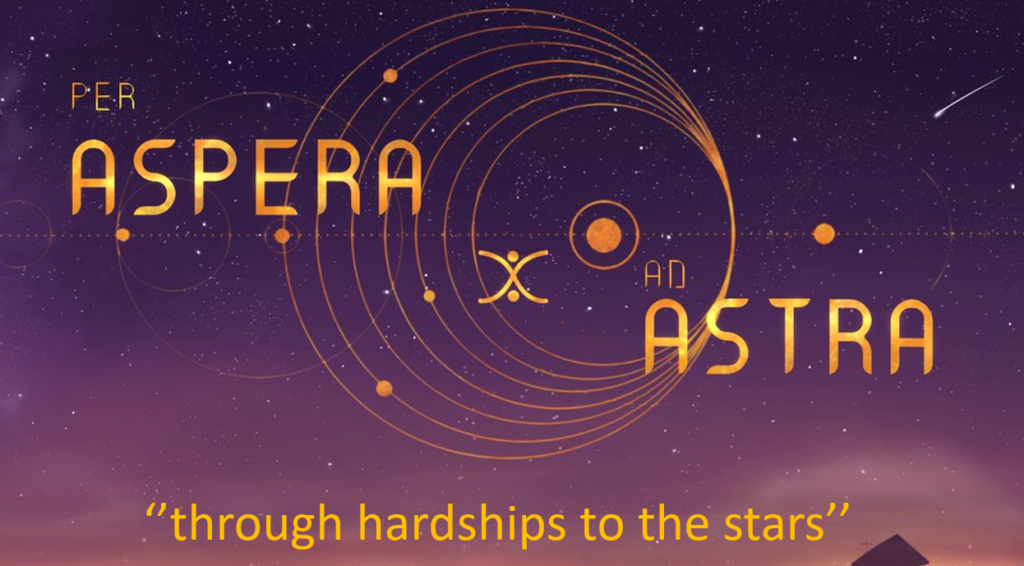
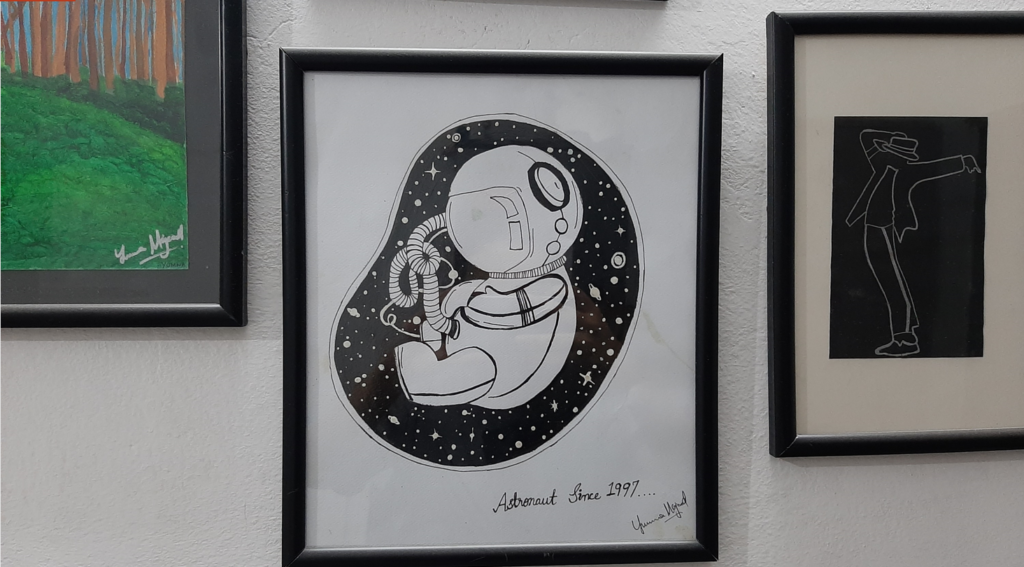
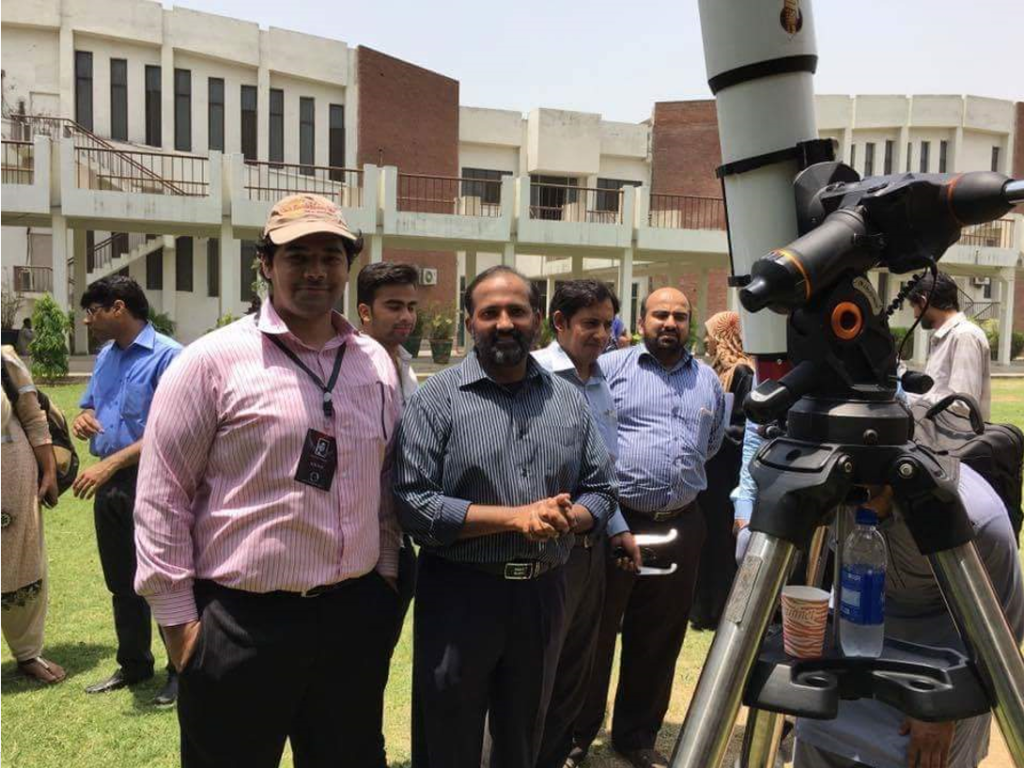
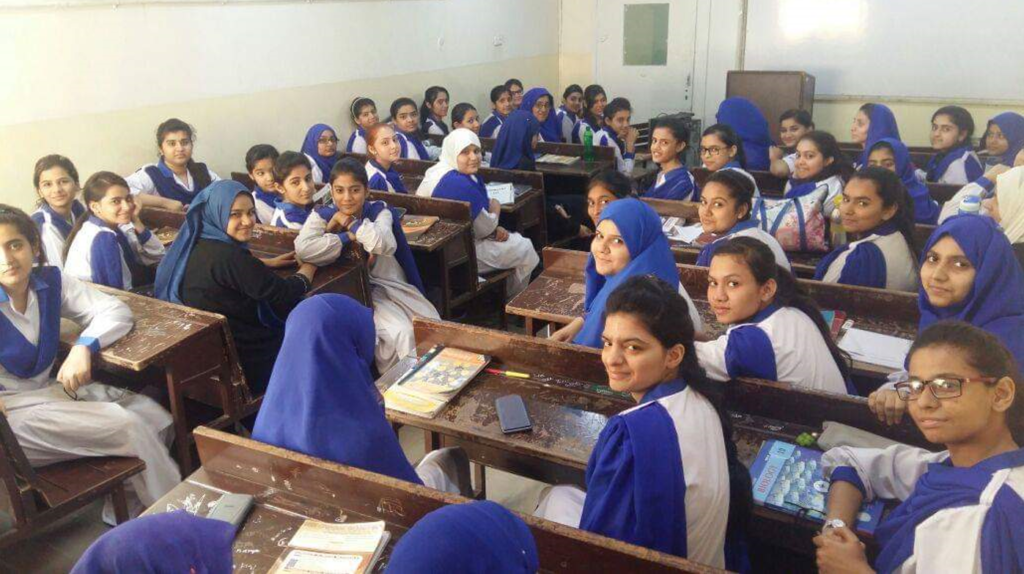
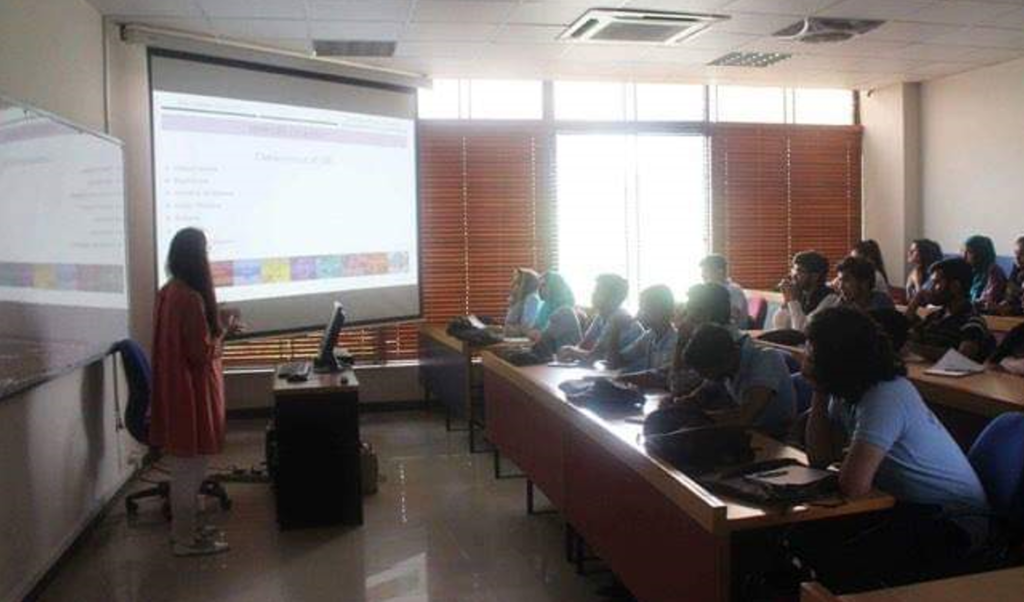
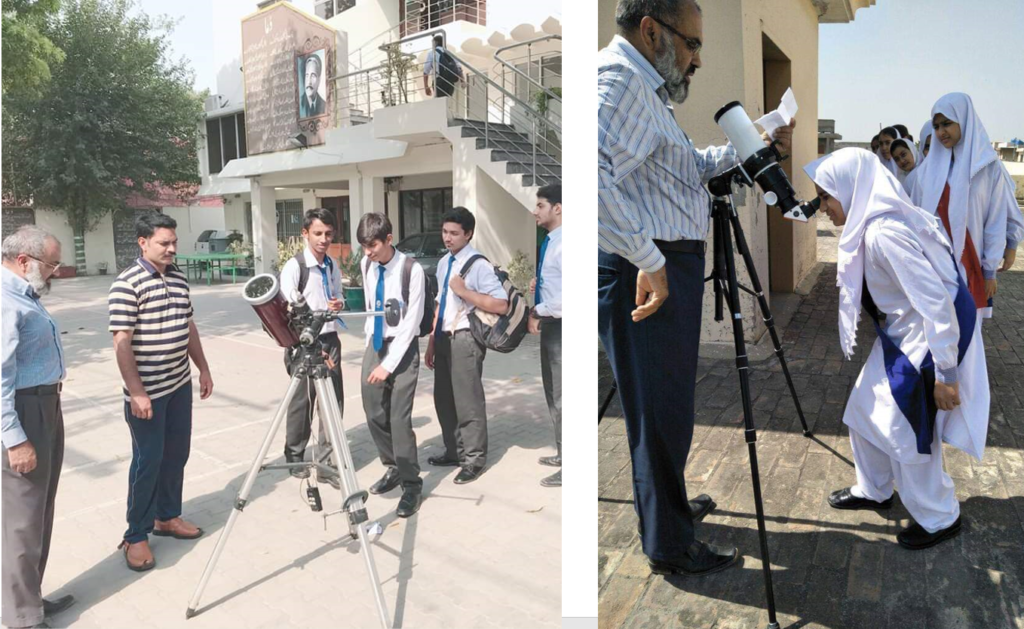
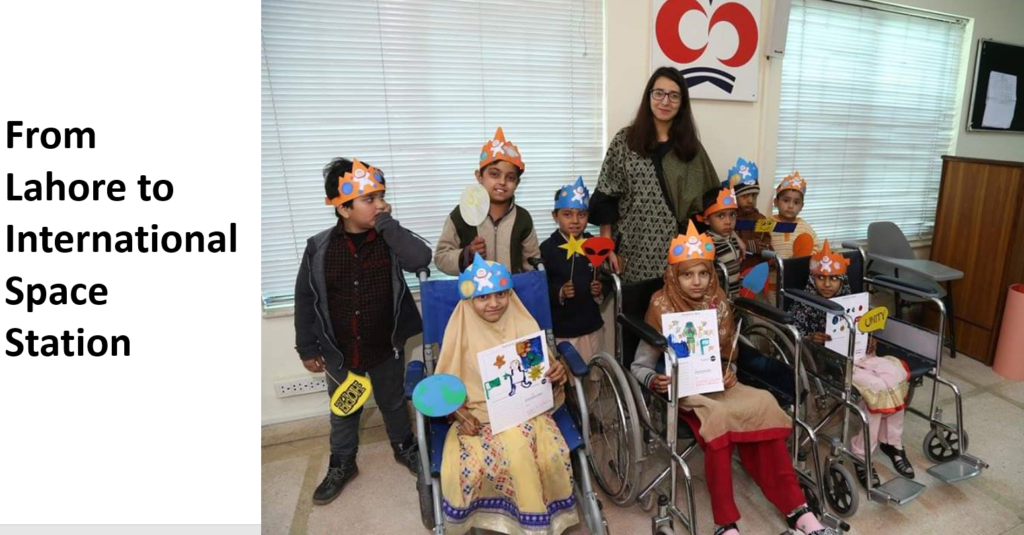
Yumna won a telescope signed by Astronaut Mark Kelly. She had difficulty getting it through customs as officials could not understand what peaceful, useful, educational purpose a person would want a telescope. There are many opportunities for the advancement of space and astronomical education in Pakistan (and in the rest of the world as well).

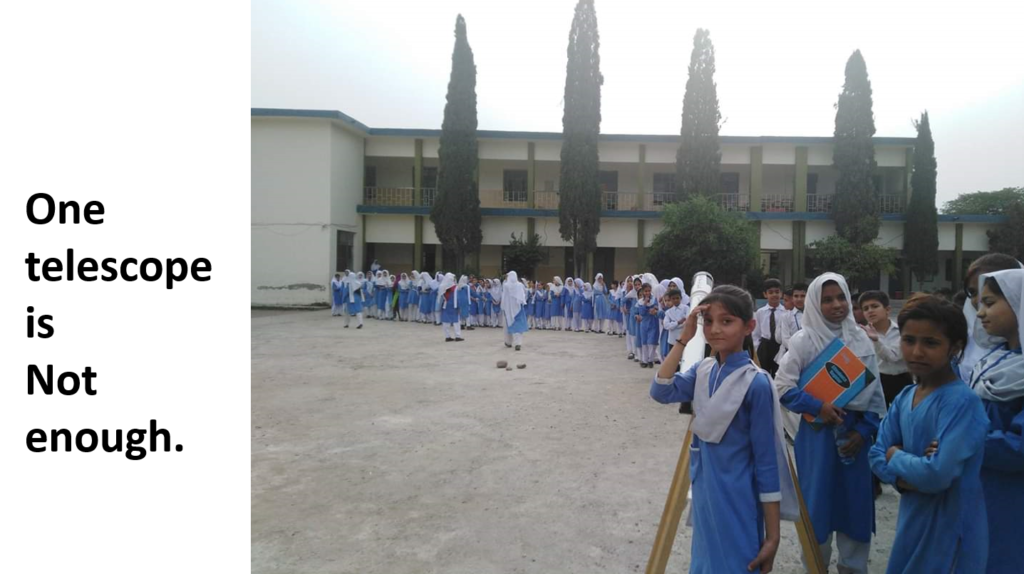
Yumna explain the difficulties with getting astronomical equipment in Pakistan and with observing at night time. David Cheuvront, a NSS North Houston Space Society member, suggested online observatory programs such as Observing with Nasa and through immersive experiences such as NASA’s eyes.
Sam also suggested that Yumna should try to connect with Dr. Pervez Hoodbhoy who been pushing for more online education with onset of the COVID crisis:
Dr. Pervez Hoodbhoy has an impressive track record of advancing science and space education in Pakistan. He did a TEDx talk:
He has done many documentaries and discussions about space. Here is just one of many that I found on the internet:
After a Q&A session with Yumna, meeting members were invited to share their astronomical experiences since the last meeting.
Vito shared a movie called Cosmos that came out in 2019 that received weak reviews, but was fairly good. “Cosmos explores the thrilling first hours of first contact when three astronomers accidentally intercept what they believe to be a faint, coded signal from a distant alien civilisation”
Peter shared an event coming up next weekend:
An Intervening Conversation: Does Human Progress Live in Space Now? A Galactic View of Humanity (Webinar)
Saturday July 18, 2020 1PM CDT
RSVP Here
Here are some more details about the event:
LaRouchePAC will host a webinar on July 18th, on space exploration as the means to take another large leap for mankind, a leap which is particularly needed now as we deal with COVID and its economic devastation. We would like very much for you to attend and participate, particularly if you are young and intrigued with the idea of creating a future loaded with awesome new discoveries about the nature of humans and the nature of our universe, overcoming the barriers which only seem to stand in our way.
The existential question that had been often posed by American Statesman and economist Lyndon LaRouche is, “What is man in the universe?” “For example, human existence is not merely conditional on the conditions on earth, the conditions on earth are subject to changes in the changing conditions of life within the solar system. In turn, the conditions for human life within the solar system as a whole, are shaped by the cyclical and other changes within our galaxy.” LaRouche insisted that the universe itself was provably anti-entropic and creative and that harnessing that creativity was the mission of mankind.
Did you know that right now on the International Space Station scientists are using microgravity, which allows for growth in three dimensions, to attempt to grow human organs for transplant use on earth?
Right now also, 3D printing is being used to create the parts needed for extended space exploration, right on the space station, in space, rather than the very expensive process of creating and ferrying spare parts and repaired parts into space from earth.
Have you thought about the fact that nations are racing now to mine helium 3 on the moon? The isotope is plentiful there and makes fusion energy possible. Fusion energy is the means to power exploration of the universe and ensure that every place on earth has an available cheap energy source.
This month marks the 45th anniversary of the Apollo-Soyuz Mission that launched on July 15, 1975. Through space cooperation we have continued to broaden the imagination, and develop the higher human identity found at the frontiers of scientific discovery.
This month the United States is preparing to launch the 2020 Mars Perseverance Rover, which will carry with it the first Mars helicopter, Ingenuity. China will be launching its first Mars mission with an orbiter and rover, Tianwen-1, and the United Arab Emirates will launch their Mars orbiter, Hope or Al Amal, on a Japanese JAXA rocket.
What if a new generation of our youth, like the Apollo generation, were trained at the highest level of science and in the bold attitude of mind which conquers the unknown, the promise now implicit in President Trump’s Artemis program? There would be no limits to human progress.
Join us for our Monthly NSS North Houston Space Society (http://NorthHoustonSpace.org) meeting. Come join others who are excited about exploring the cosmos, learning how to use the resources of space to improve human life, and who want to go and spread humanity to the rest of the universe.
The meeting will be on Saturday, July 11, 2020 at 2PM (CDT) ONLINE Via ZOOM: https://us02web.zoom.us/j/85216600533
Agenda:
2:00 PM – Opening Remarks – Nathan Price
2:10 PM – Recent Space News – Greg Stanley
2:30 PM – Yumna Majeed
3:15 PM – Q&A
3:30 PM – Share your personal space experiences since the last meeting. Rocket Launches, Other Meetings, Research, etc.
4:00 PM – End of Meeting
Featured Speaker: Yumna Majeed
Exploration – Shades of Cosmos
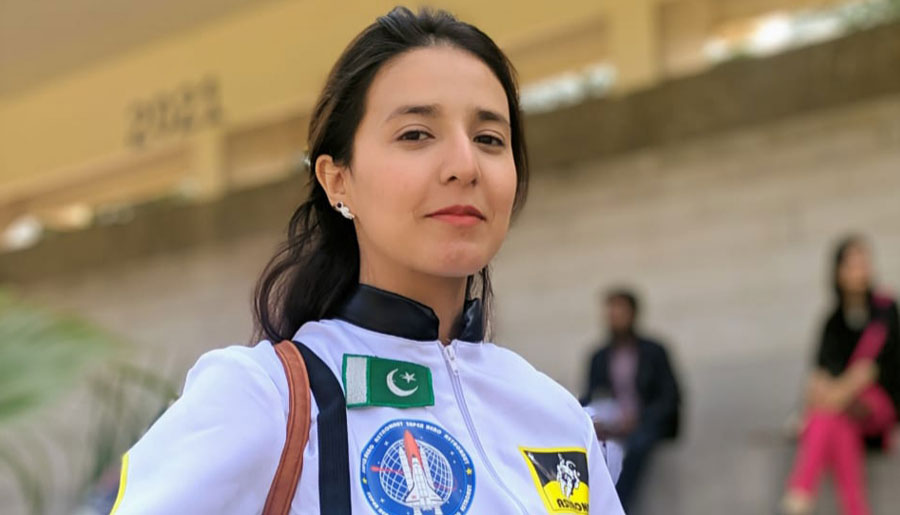
About the Speaker:
Yumna Majeed is undergrad student of Medical Lab Technology at Allama Iqbal Medical College. She is an aspiring astronaut and has been working to promote astronomy and space technology in Pakistan since 2016. She has founded *Exploration* which is a space education social enterprise. Yumna believes every kid should get answers to their space imaginations which they usually don’t get in their classrooms. For that purpose, she is working in affiliation with various international space organisations and she has recently presented her work to space education department of JAXA, Japan.
Meetings open to all age groups and interest levels. Come explore with us the potential that developing and exploring space has to better life here on earth and to open up new frontiers creating new perspectives that can help enrich the human experience.
The Vision of NSS is people living and working in thriving communities beyond the Earth, and the use of the vast resources of space for the dramatic betterment of humanity.
The Mission of NSS is to promote social, economic, technological, and political change in order to expand civilization beyond Earth, to settle space and to use the resulting resources to build a hopeful and prosperous future for humanity. Accordingly, we support steps toward this goal, including human spaceflight, commercial space development, space exploration, space applications, space resource utilization, robotic precursors, defense against asteroids, relevant science, and space settlement oriented education.
Website: http://NorthHoustonSpace.org
MeetUp: https://www.meetup.com/Future-North-Houston-National-Space-Society-Chapter/
FaceBook: https://www.facebook.com/NssNorthHoustonSpaceSociety/Posted on
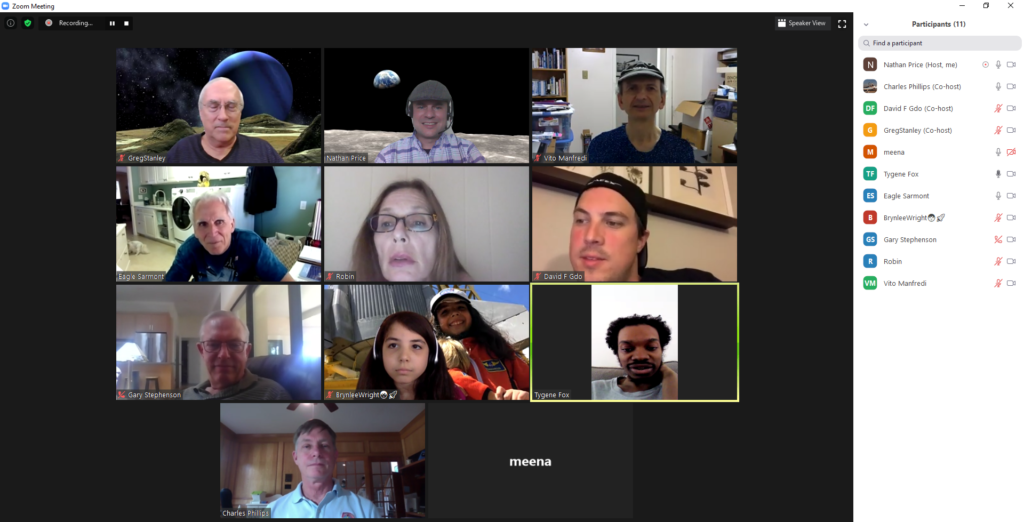

We are at an inflection point. We can branch out into the rest of the solar system and ensure that humanity continues or we can stay on earth indefinitely ensuring humanity’s eventual end. We have tamed the horse, harnessed the wind. Steam and gasoline have been employed to do more physical labor than would be possible with muscle. We have taken flight in the air in planes carrying 1 person aloft for seconds. Now we fly around the world and think nothing of it. And we have 90% reusable rockets that can take people to orbit.
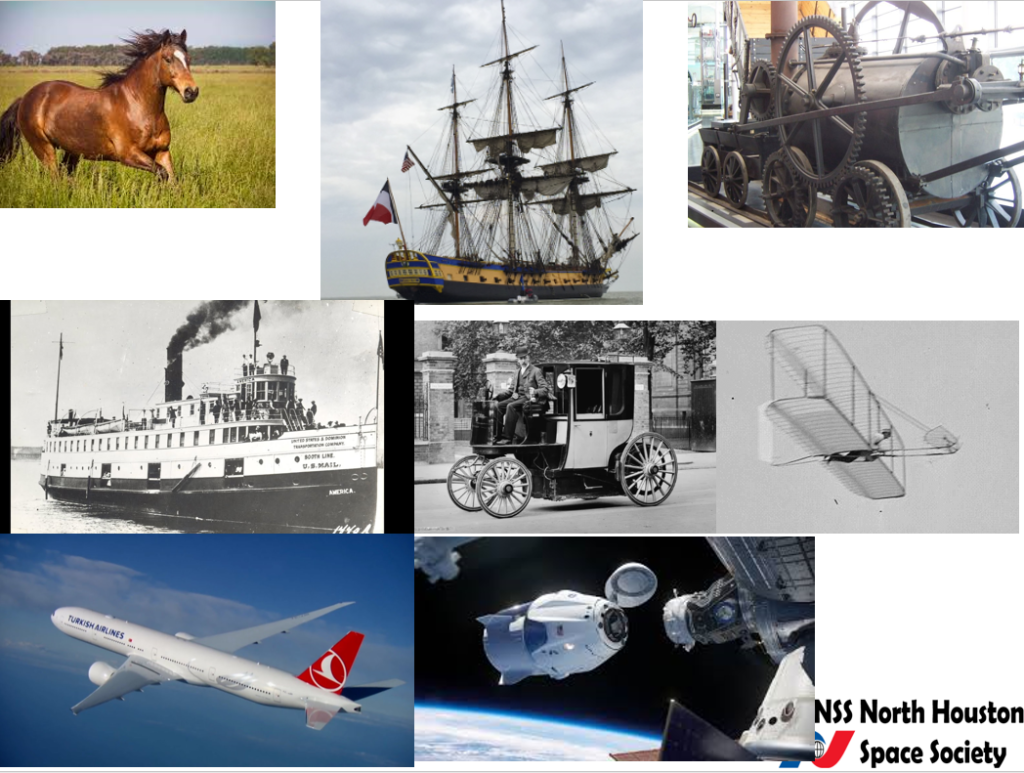
What is the next big leap in transportation? It is the SpaceX StarShip

When we have starships routinely traveling to orbit, to the moon, to Mars it will enable industry and opportunity that is completely unimaginable now. The Starship is actually being built. In Boca Chica, TX there are shifts of people working 24×7 making it a reality. And once it does, the images below will just hint of the true extent of our development.
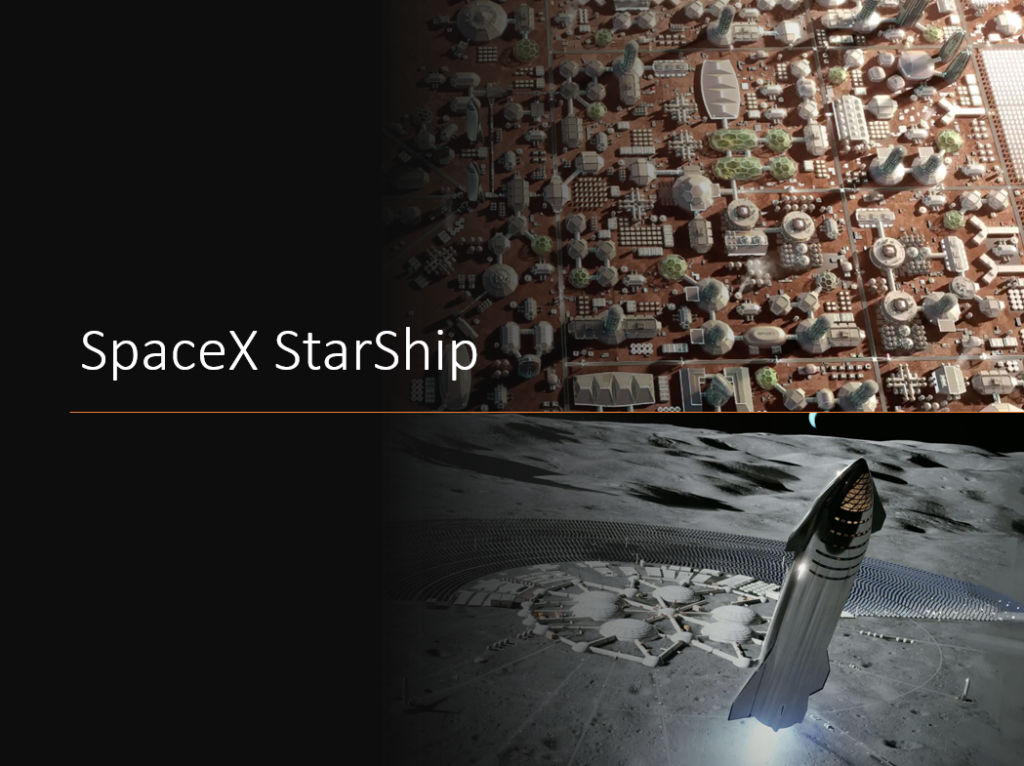
Greg Stanley gave an update on recent space news.
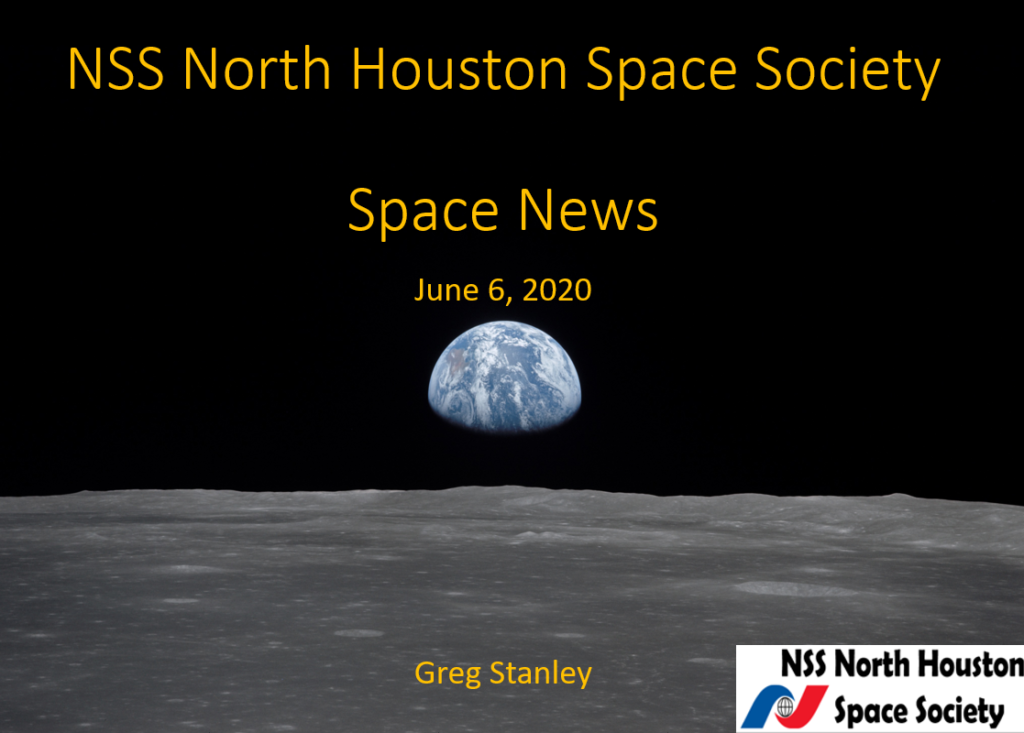
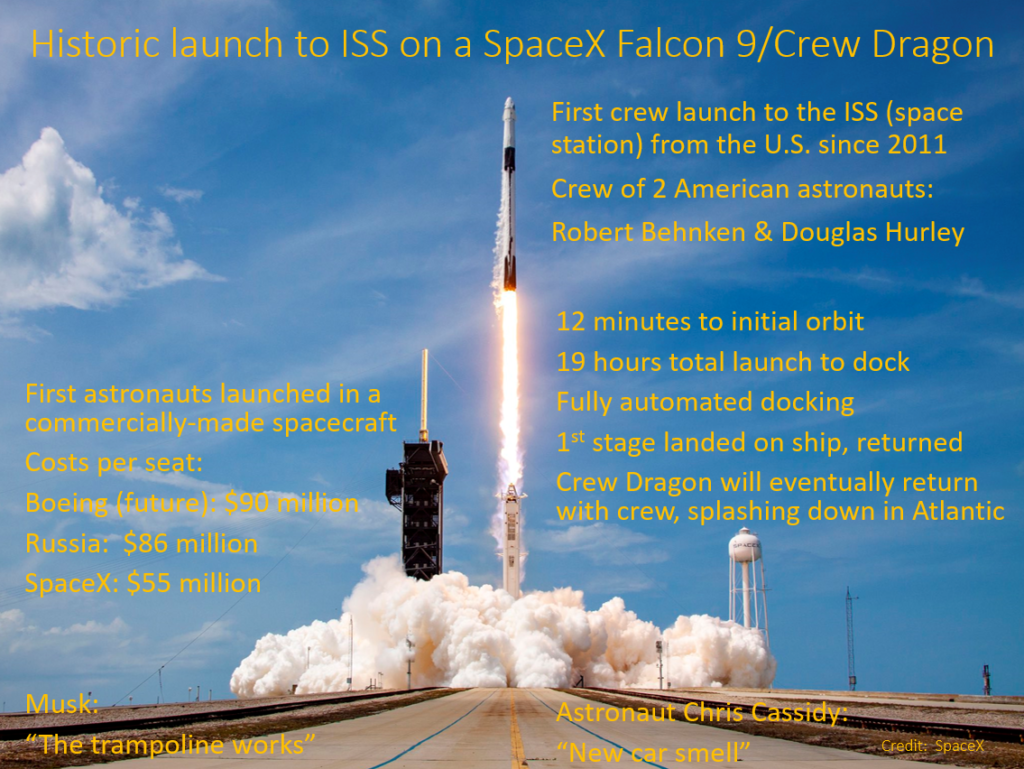
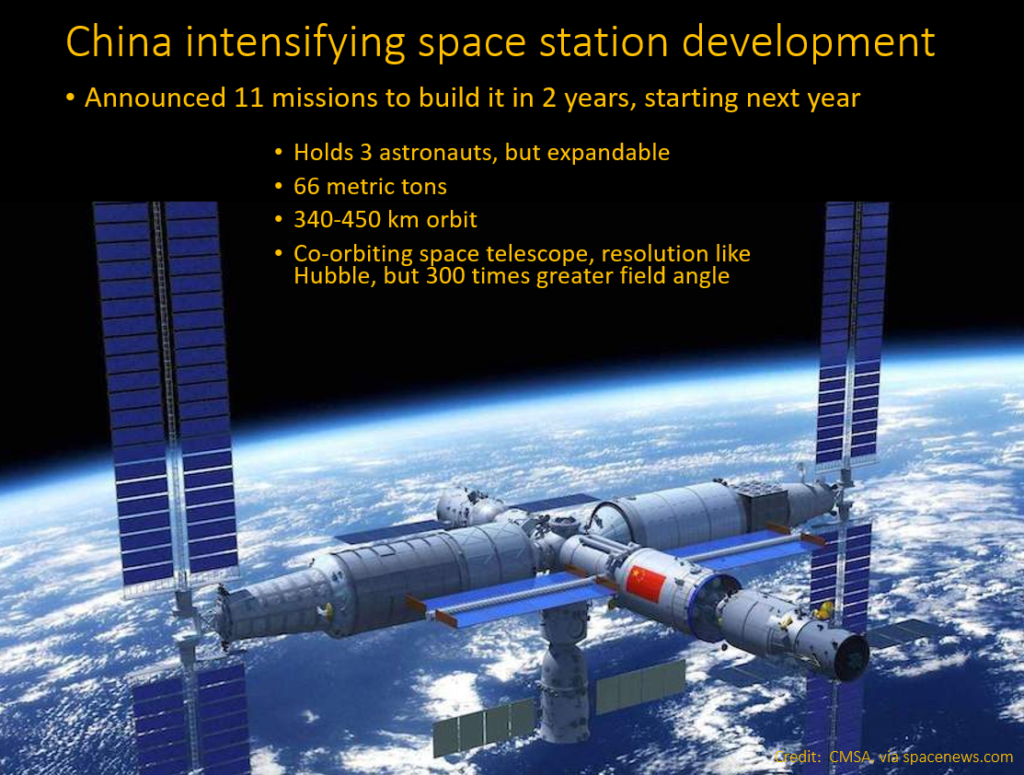
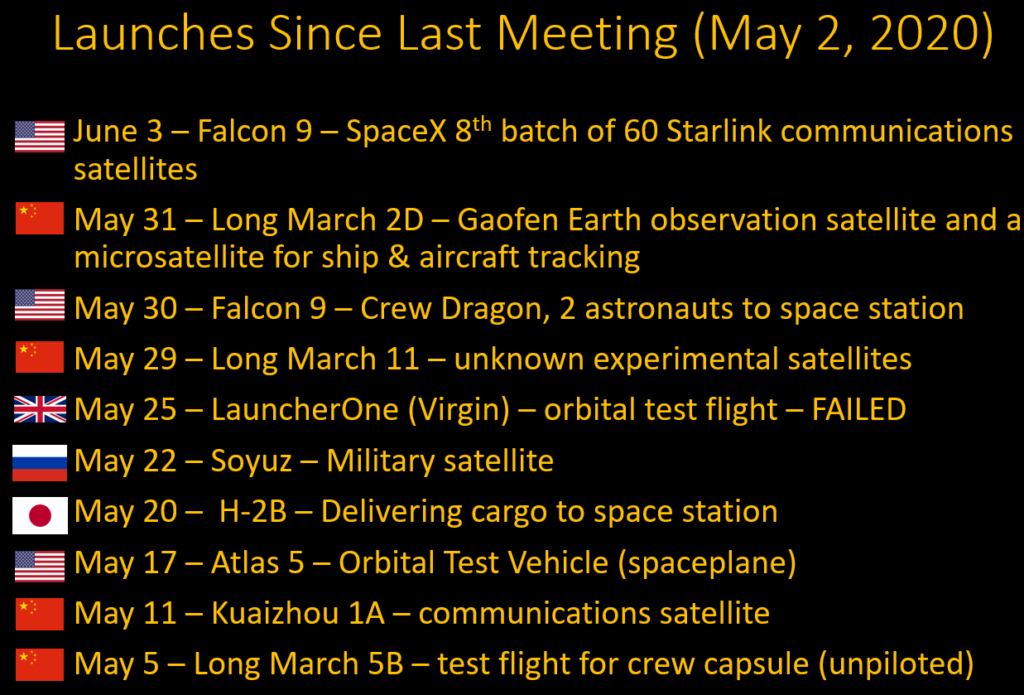




Mark Guillette (NASA/JPL Ambassador) will be hosting more of his YouTube Live videos related to NASA. He currently has scheduled the following –
What’s Up at NASA?
Thursday, June 25th from 2-3pm Central time
and
Is There Life Beyond Earth?
Tuesday, July 28th from 6:30-7:30pm Central time
They are available at those times on his YouTube channel – www.youtube.com/mjguillette and here is a link to his bio page – https://solarsystem.nasa.gov/ambassadors/1885/

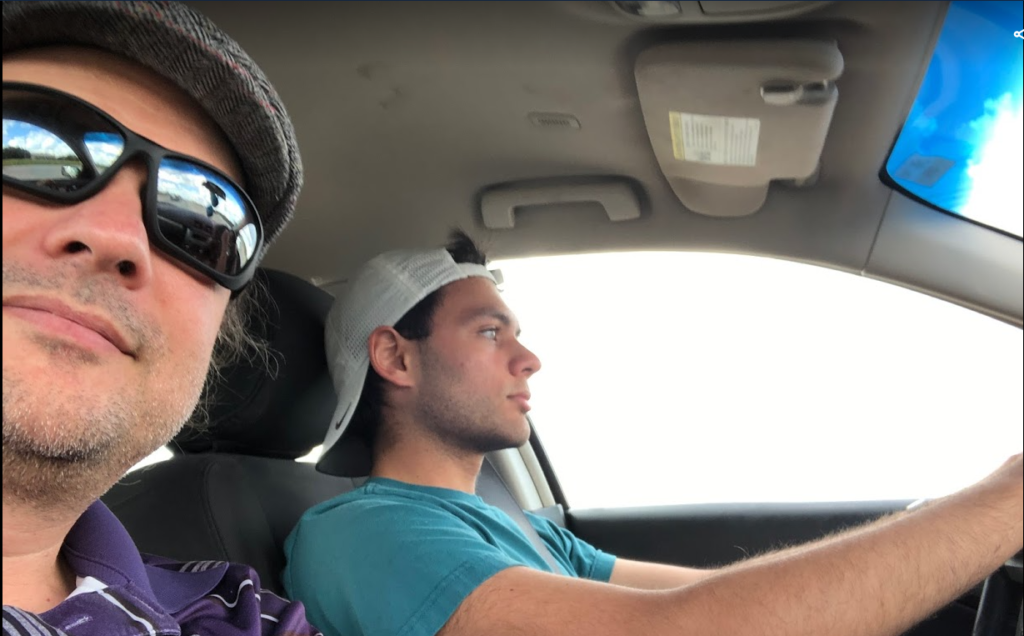
Nathan & Christopher Price drove to Florida to see the Launch last Wednesday. It was a 15 hour drive from Houston. And there were many, many people there to see the flight.
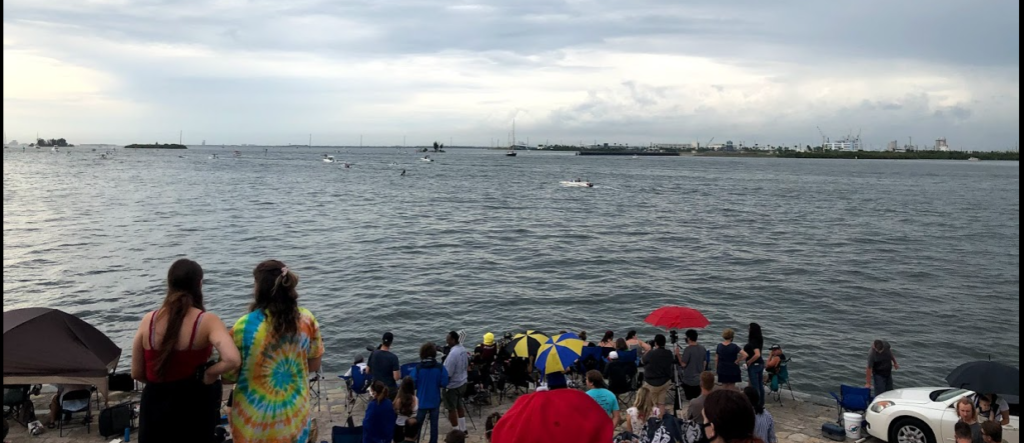
The flight ended up getting scrubbed because of weather.

But the next day, the Kennedy Space Center visitor center partially reopened. Immediately outside the center, there are several massive building for Blue Origin, Jeff Bezos’ space company.

Christopher and Nathan were able to see the Atlantis Space Shuttle.
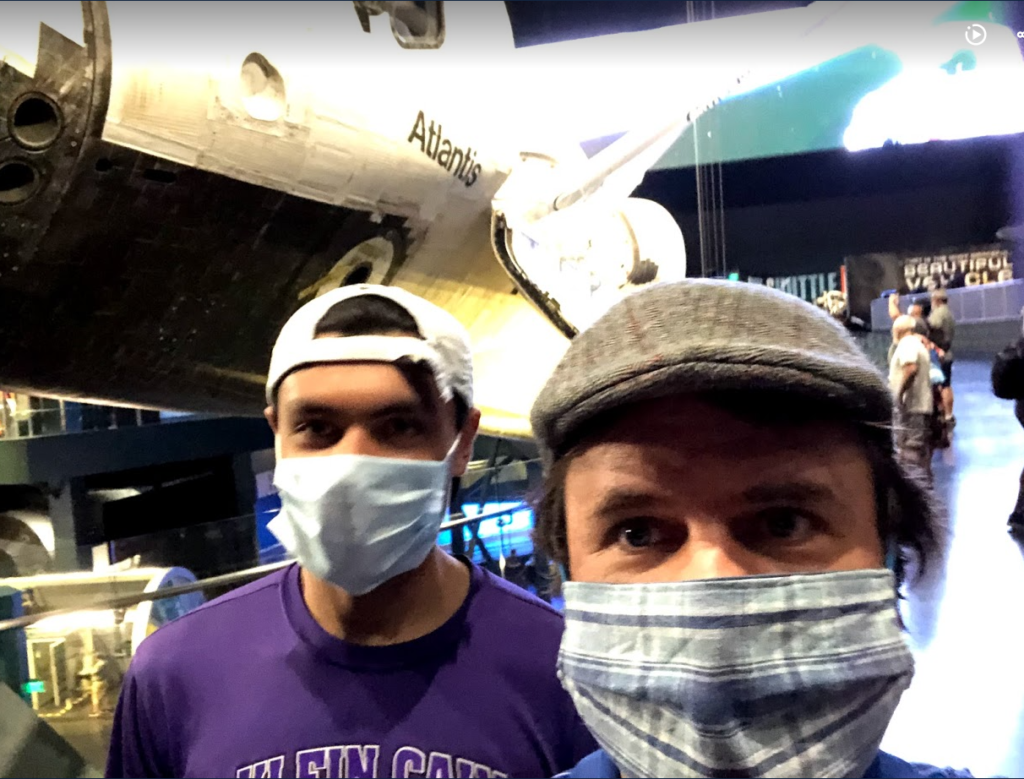
While Nathan and Christopher had to return. David Geraldo was able to stay and see the launch on Saturday.
David also saw the Starlink launch this past wednesday.
As well as the boats that were tasked to get the faring halves.
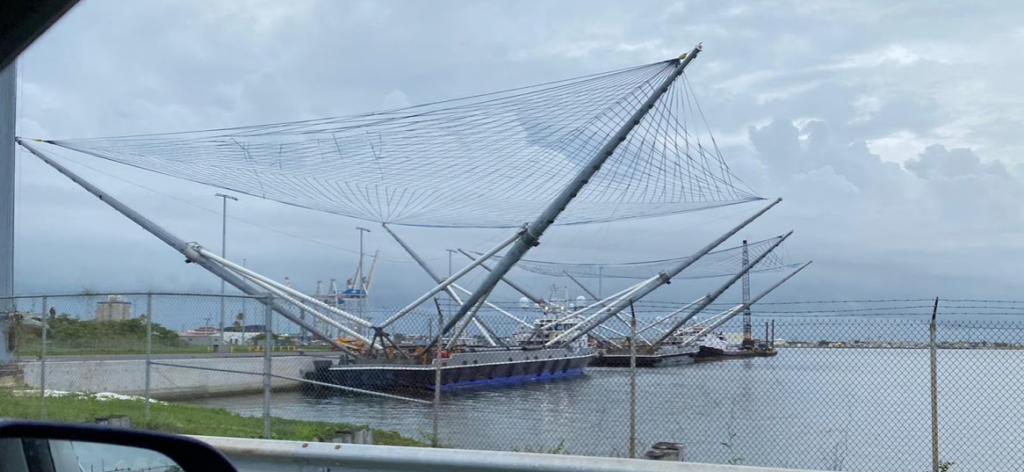
Join us for our Monthly NSS North Houston Space Society (http://NorthHoustonSpace.org) meeting. Come join others who are excited about exploring the cosmos, learning how to use the resources of space to improve human life, and who want to go and spread humanity to the rest of the universe.
The meeting will be on Saturday, June 6, 2020 at 2PM ONLINE Via ZOOM: https://us02web.zoom.us/j/85216600533
Agenda:
2:00 PM – Opening Remarks – Nathan Price
2:10 PM – Recent Space News – Greg Stanley
2:30 PM – Tracking Satellites – Charles Phillips
3:15 PM – Q&A
3:30 PM – Where were you for the Historic SpaceX DM-2 Launch… Come prepared to share your experience. Some of our members went to Florida to see it.
4:00 PM – End of Meeting
Featured Speaker: Charles Phillips
CEO of Spaceflight Research
Tracking Satellites:
The discussion will be a (non-technical) overview of how to track satellites from the Houston area. It is possible to track satellites with inexpensive equipment and easily available software. The discussion will include WHY a person would track satellites and also HOW it is done. The existing Satellite Catalog will be briefly discussed and why some satellites are not shown in that catalog. The discussion is designed to give an overview so an interested person could decide if they want to get more involved and can determine what they might need to generate observations.
About the Speaker:
Charles Phillips started tracking satellites in 1978 when he was in the US Air Force, he was an orbital analyst. He came to Houston in January 1985 as an Air Force flight controller at the Johnson Space Center, his first flight as a qualified flight controller was STS-51L. In 1990 he started as a civilian flight controller for Spacelab Life Sciences flights and worked STS-40 and STS-58. He also supported the NASA/Mir program and the ISS.
Can you spot the satellite in this photo?

Meetings open to all age groups and interest levels. Come explore with us the potential that developing and exploring space has to better life here on earth and to open up new frontiers creating new perspectives that can help enrich the human experience.
The Vision of NSS is people living and working in thriving communities beyond the Earth, and the use of the vast resources of space for the dramatic betterment of humanity.
The Mission of NSS is to promote social, economic, technological, and political change in order to expand civilization beyond Earth, to settle space and to use the resulting resources to build a hopeful and prosperous future for humanity. Accordingly, we support steps toward this goal, including human spaceflight, commercial space development, space exploration, space applications, space resource utilization, robotic precursors, defense against asteroids, relevant science, and space settlement oriented education.
Website: http://NorthHoustonSpace.org
MeetUp: https://www.meetup.com/Future-North-Houston-National-Space-Society-Chapter/
FaceBook: https://www.facebook.com/NssNorthHoustonSpaceSociety/